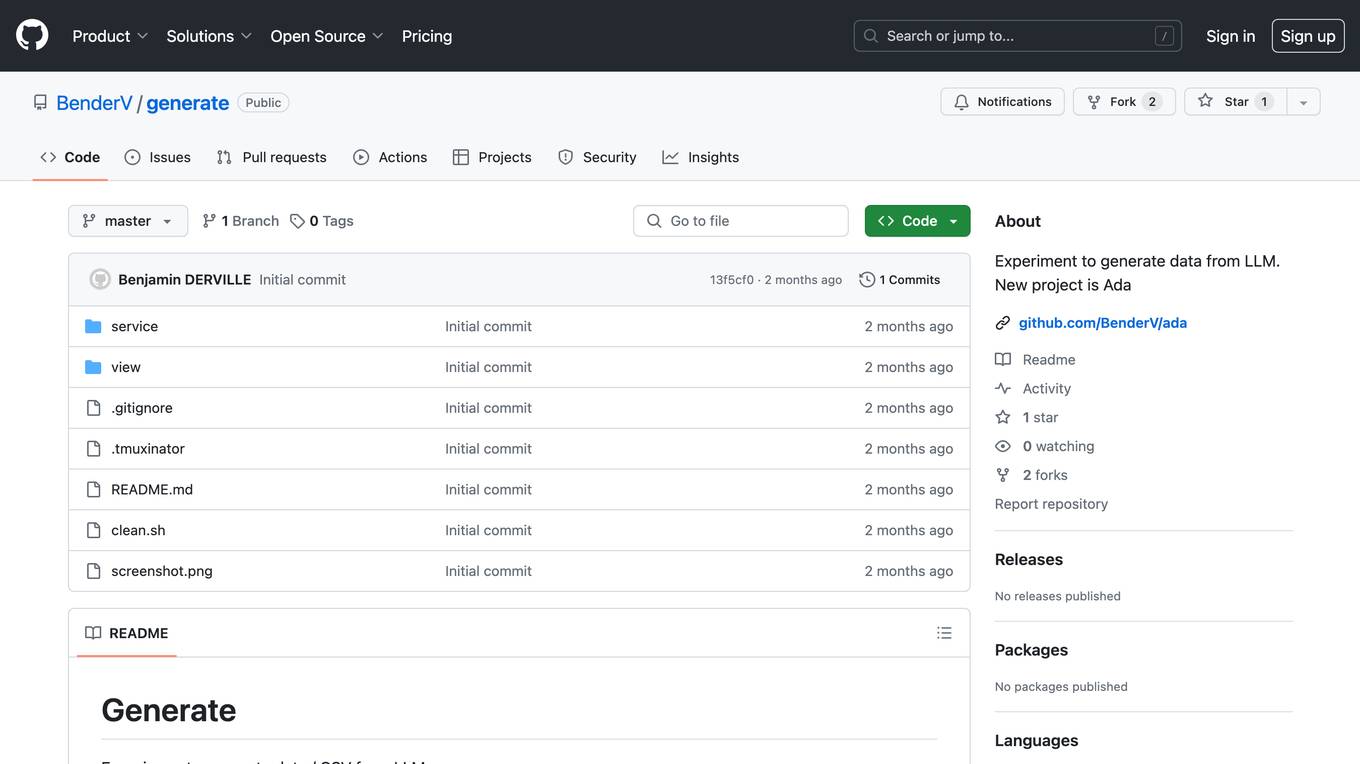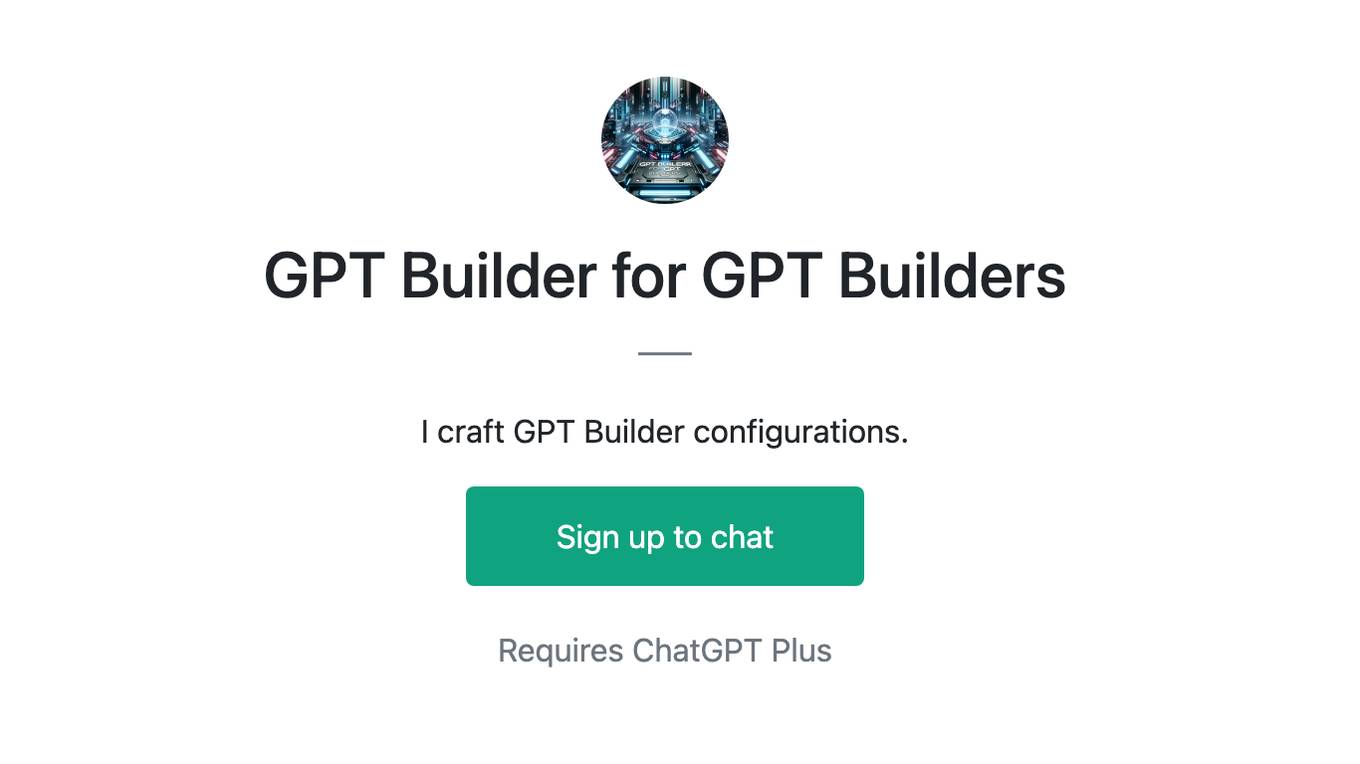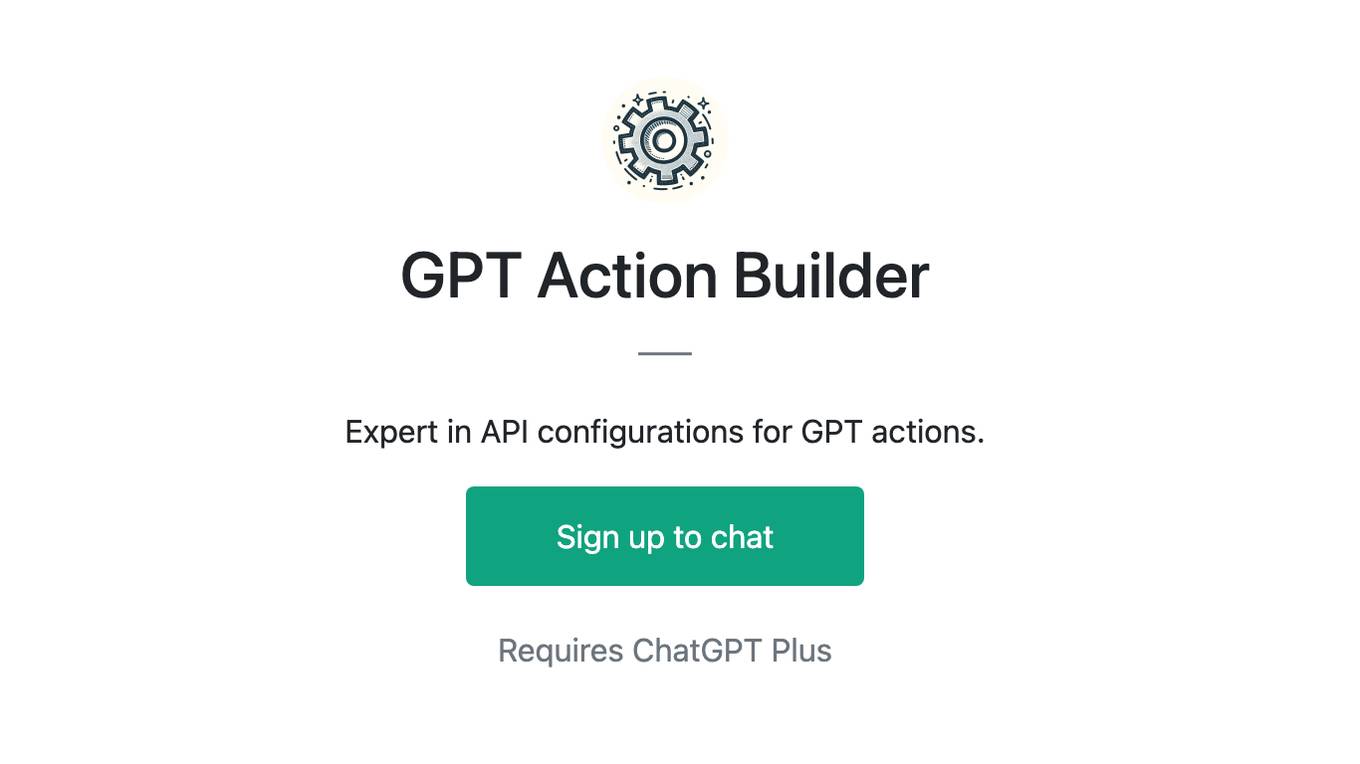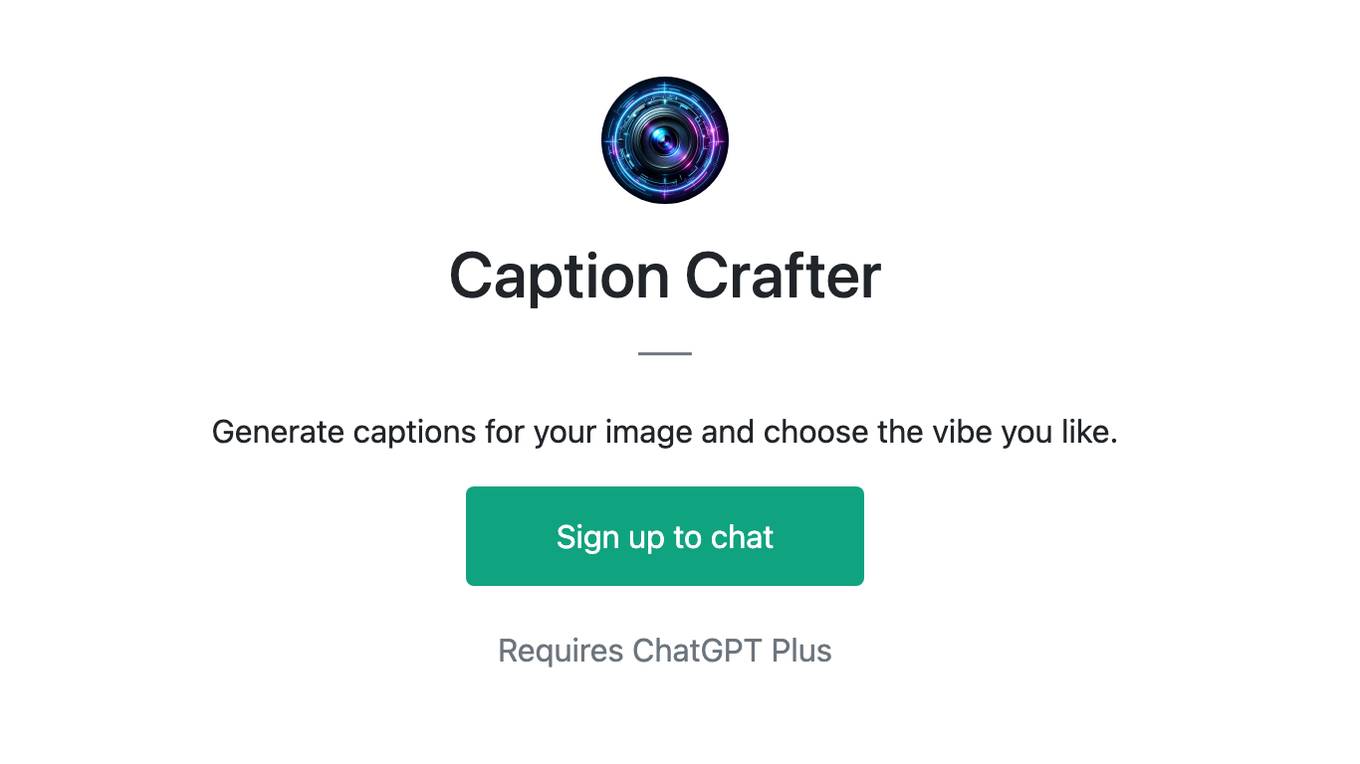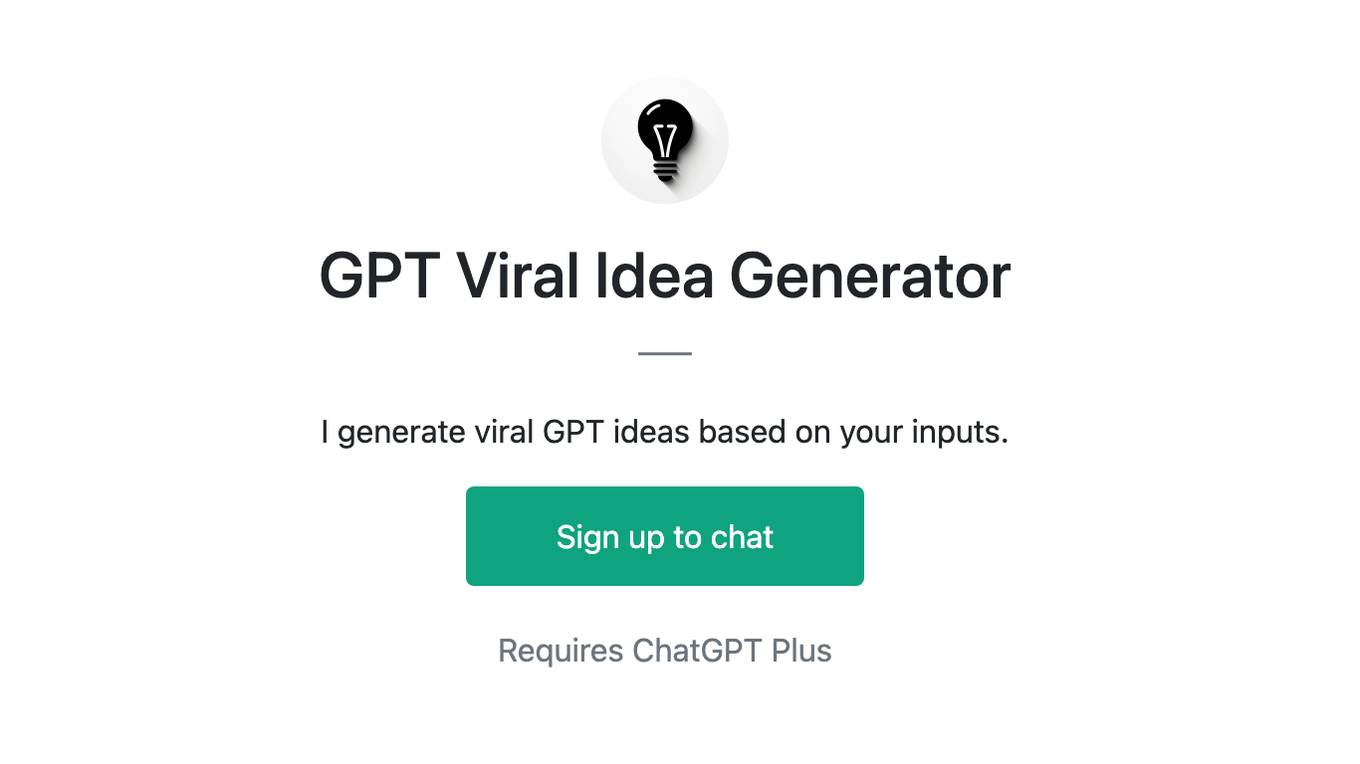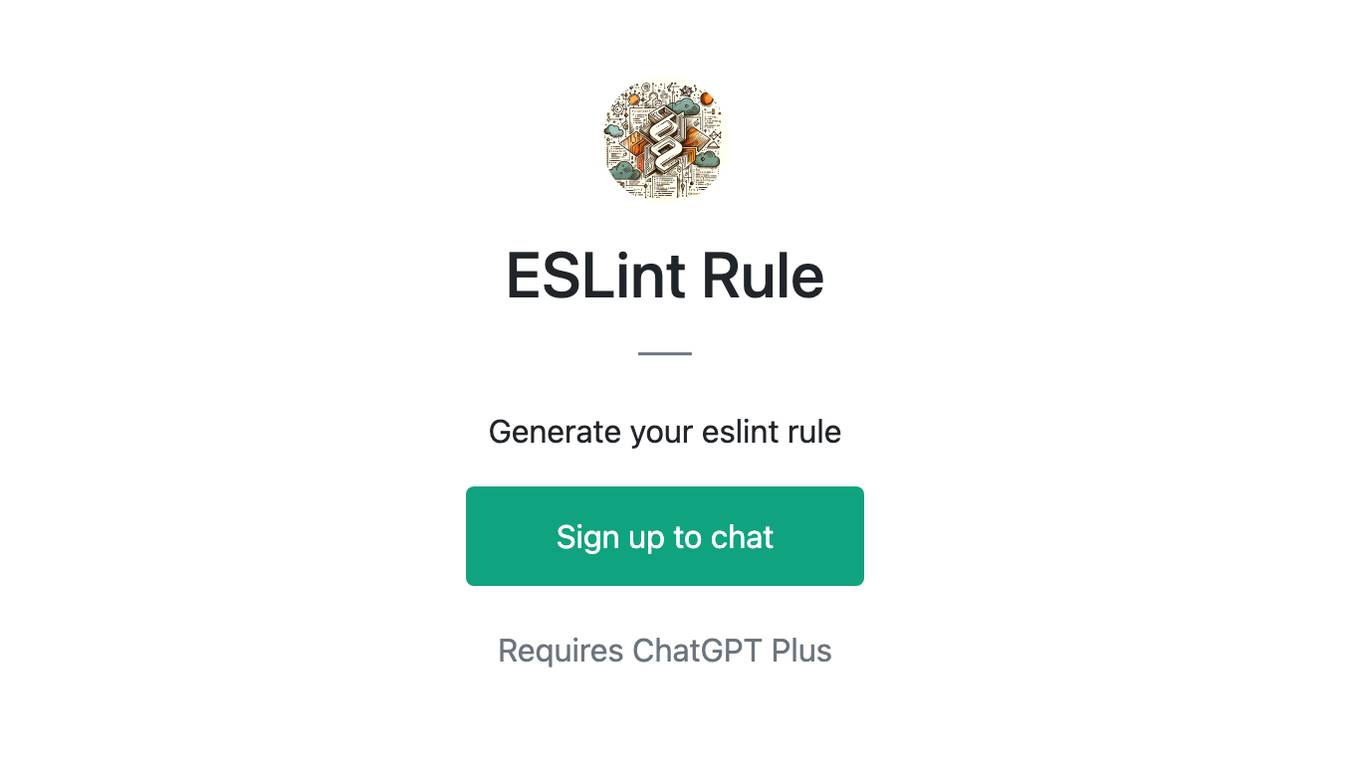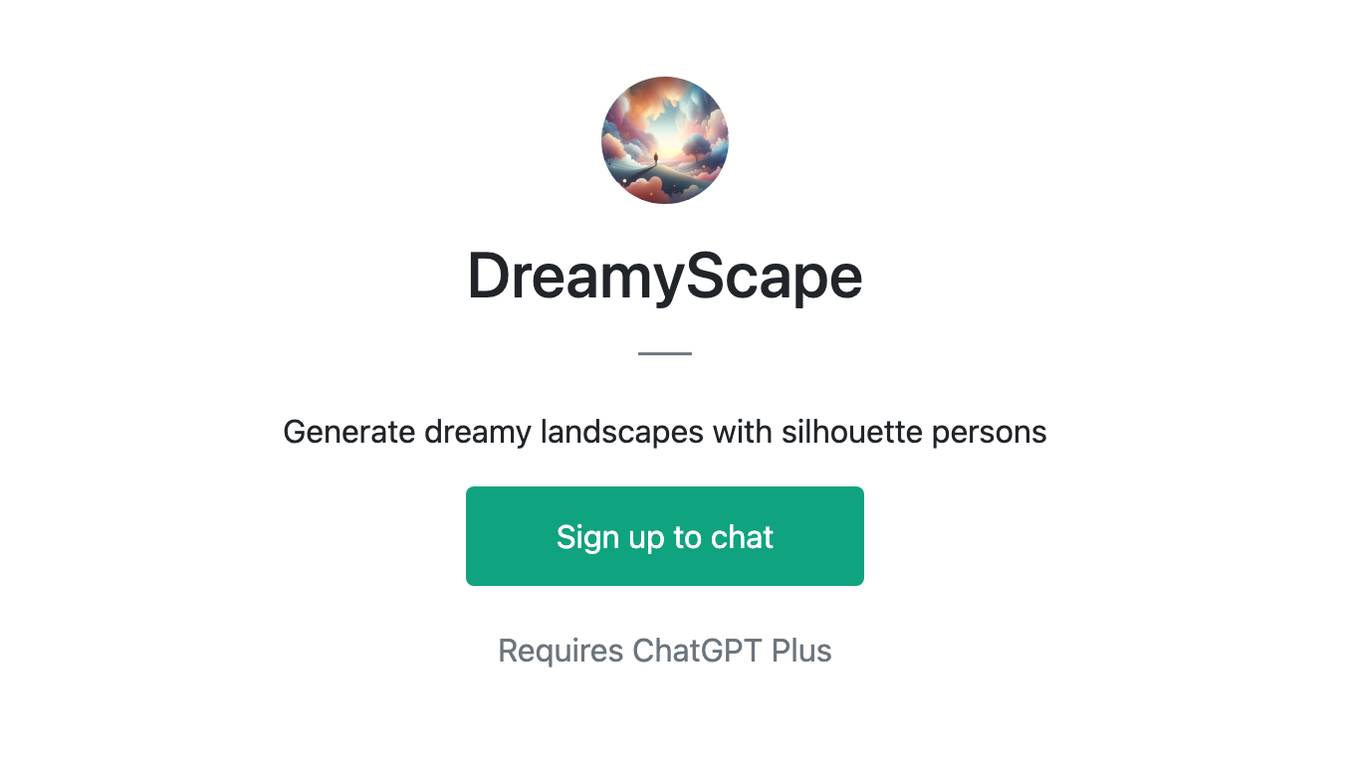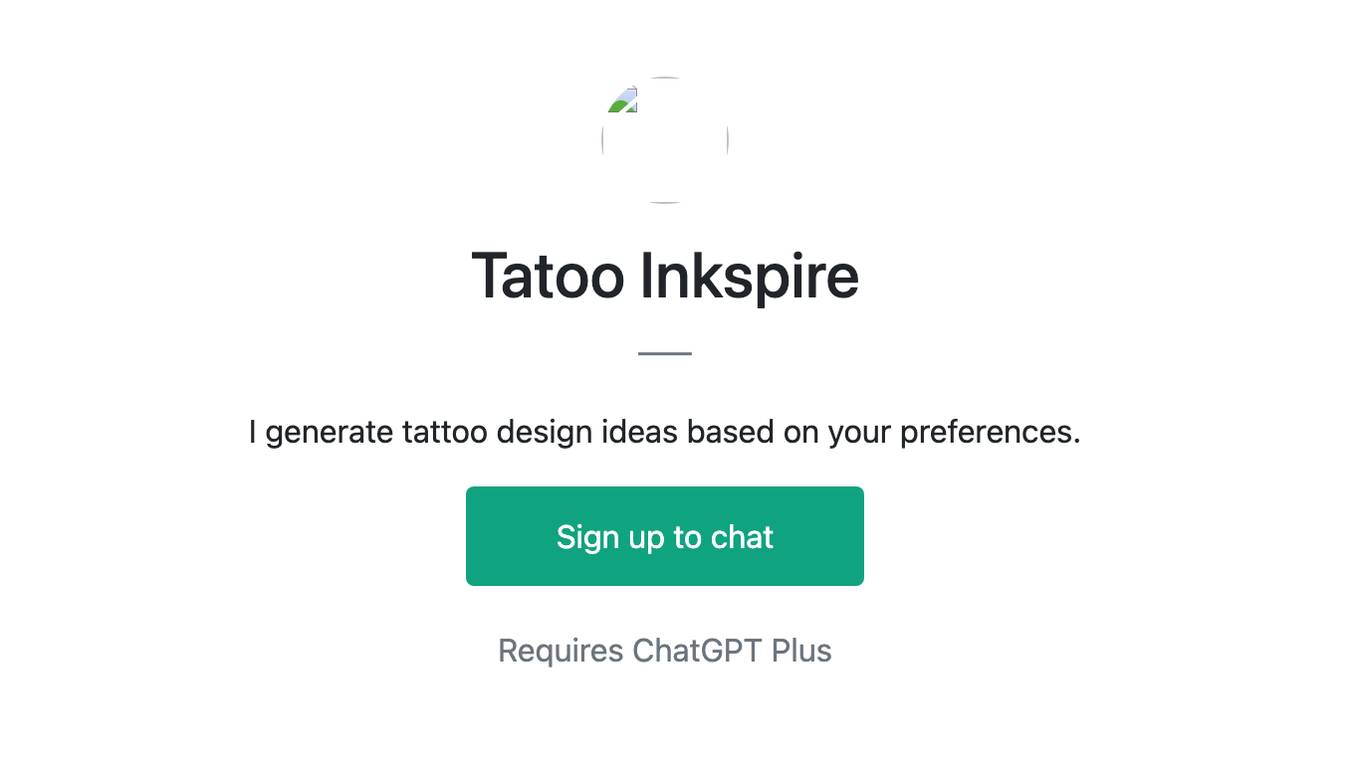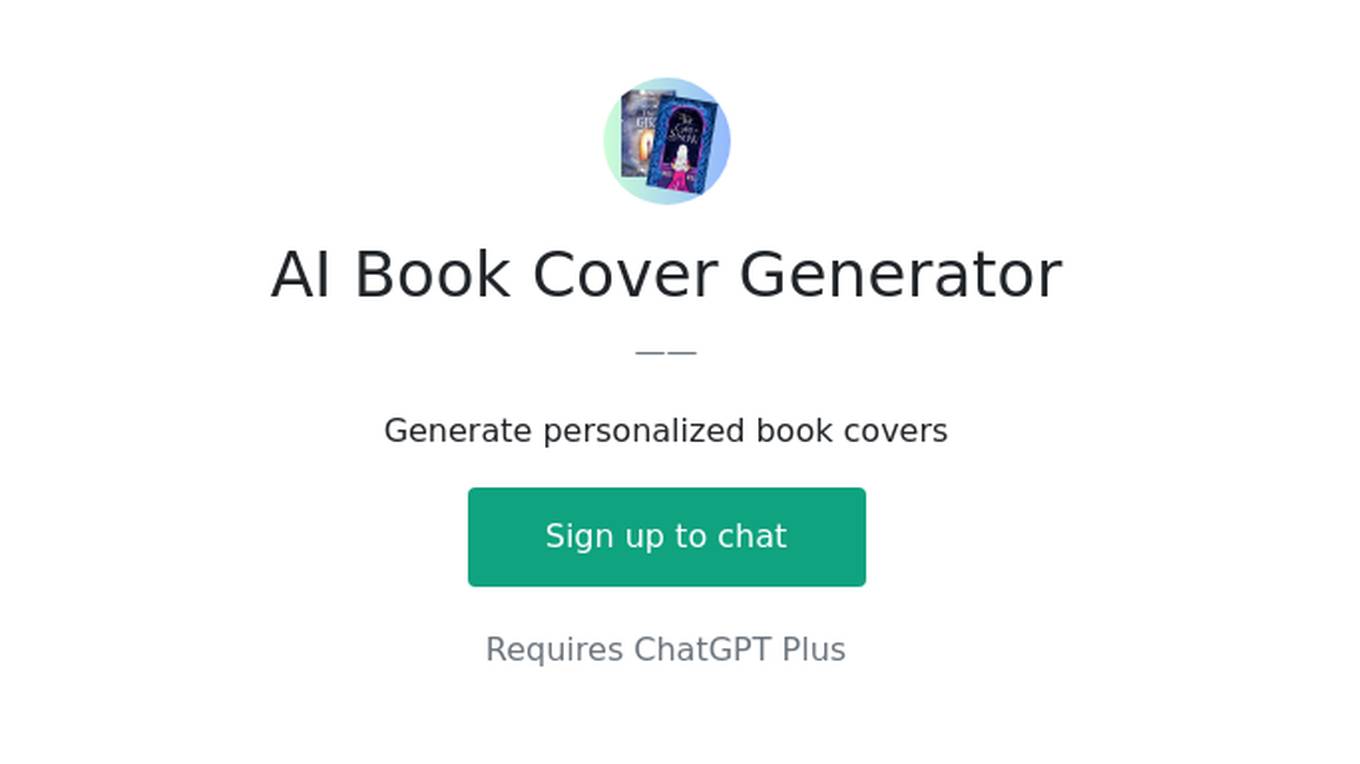Best AI tools for< Generate Configurations >
20 - AI tool Sites
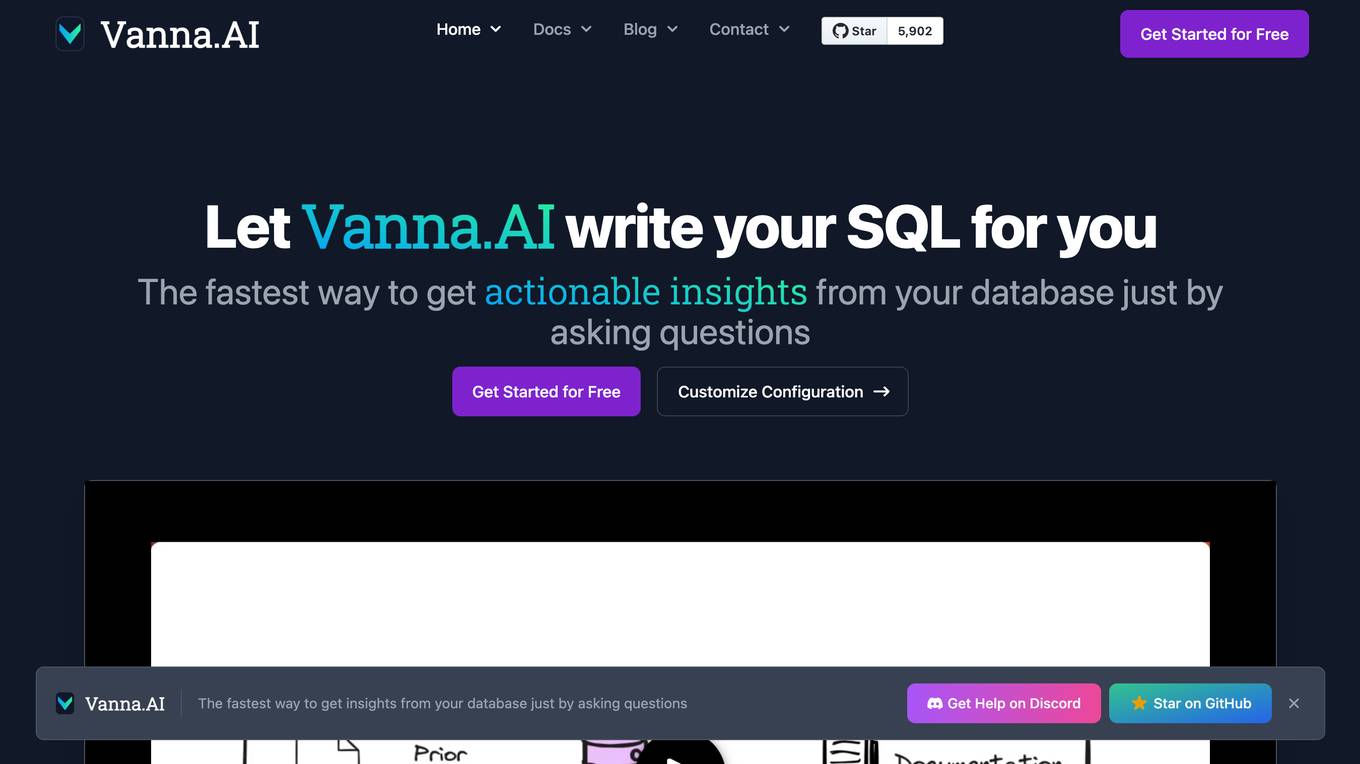
Vanna.AI
Vanna.AI is a personalized AI SQL agent that allows users to get actionable insights from their database by simply asking questions. It helps users to write SQL queries efficiently and generate insights without the need for expert SQL knowledge. The application is open-source, highly accurate on complex datasets, designed for security, self-learning, and supports various databases. Vanna.AI is fully customizable to match unique needs and offers enterprise customization options.

Confident AI
Confident AI is an open-source evaluation infrastructure for Large Language Models (LLMs). It provides a centralized platform to judge LLM applications, ensuring substantial benefits and addressing any weaknesses in LLM implementation. With Confident AI, companies can define ground truths to ensure their LLM is behaving as expected, evaluate performance against expected outputs to pinpoint areas for iterations, and utilize advanced diff tracking to guide towards the optimal LLM stack. The platform offers comprehensive analytics to identify areas of focus and features such as A/B testing, evaluation, output classification, reporting dashboard, dataset generation, and detailed monitoring to help productionize LLMs with confidence.
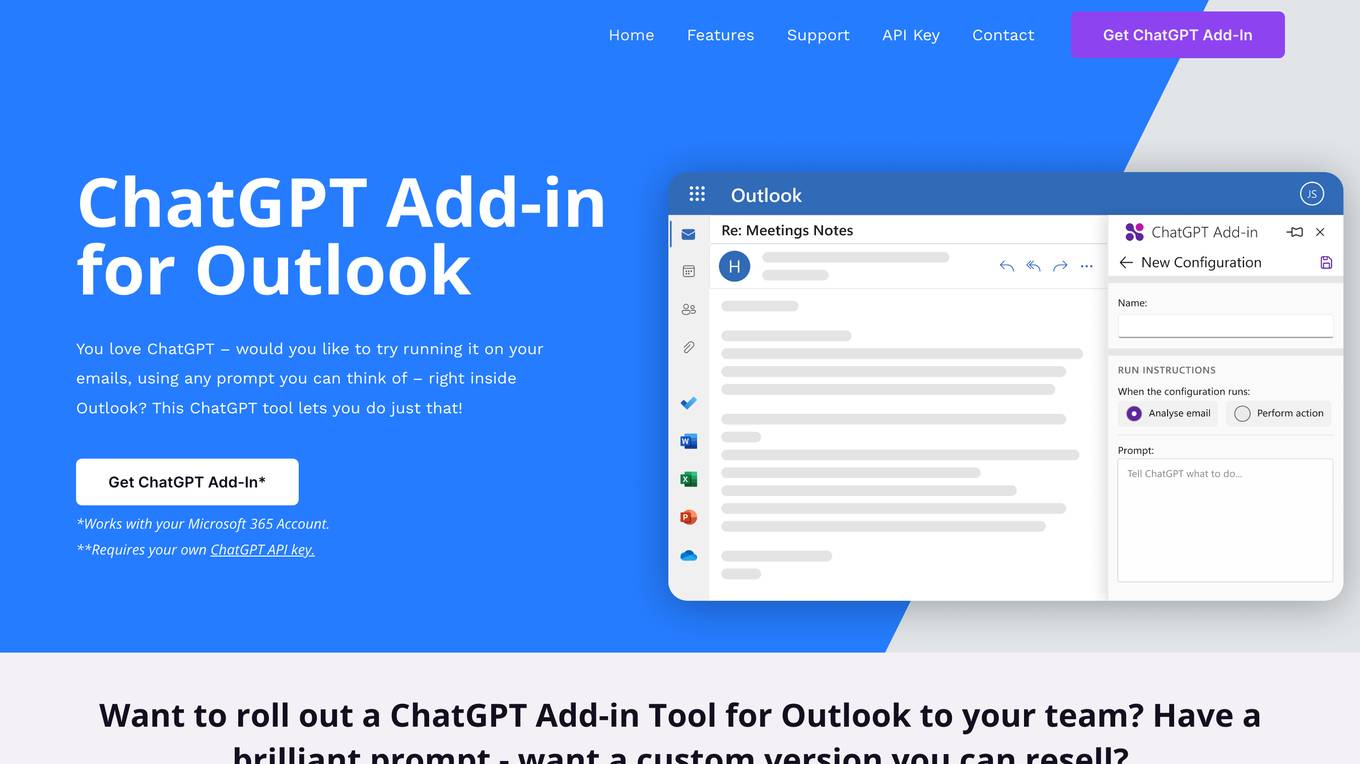
ChatGPT for Outlook
ChatGPT for Outlook is an AI tool that integrates the power of ChatGPT into Microsoft Outlook, allowing users to run ChatGPT on emails to generate summaries, highlights, and important information. Users can create custom prompts, process entire emails or specific parts, manage multiple configurations, and improve email efficiency. Blueberry Consultants, the developer, offers custom versions for businesses and teams, enabling users to resell the tool with unique prompts. The tool enhances productivity and information management within Outlook, leveraging AI technology for email processing and organization.
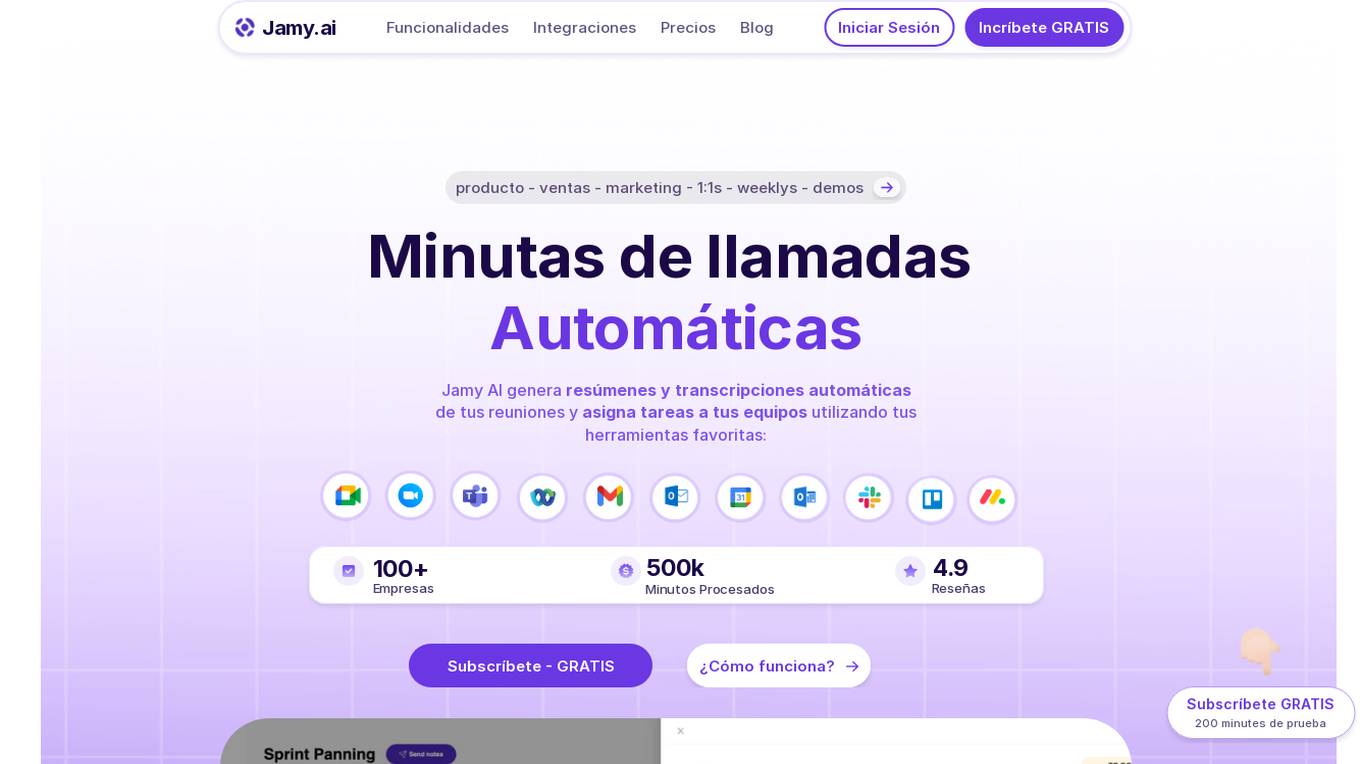
Jamy.ai
Jamy.ai is an AI-powered meeting assistant that joins virtual calls, records audio and video, generates transcriptions, summaries, and extracts key topics and tasks related to the meeting. It offers features like automatic task assignment, customizable templates, webhook configurations, and personalized reports. Jamy.ai aims to streamline meeting productivity and enhance team collaboration by providing accurate meeting summaries and facilitating task management.
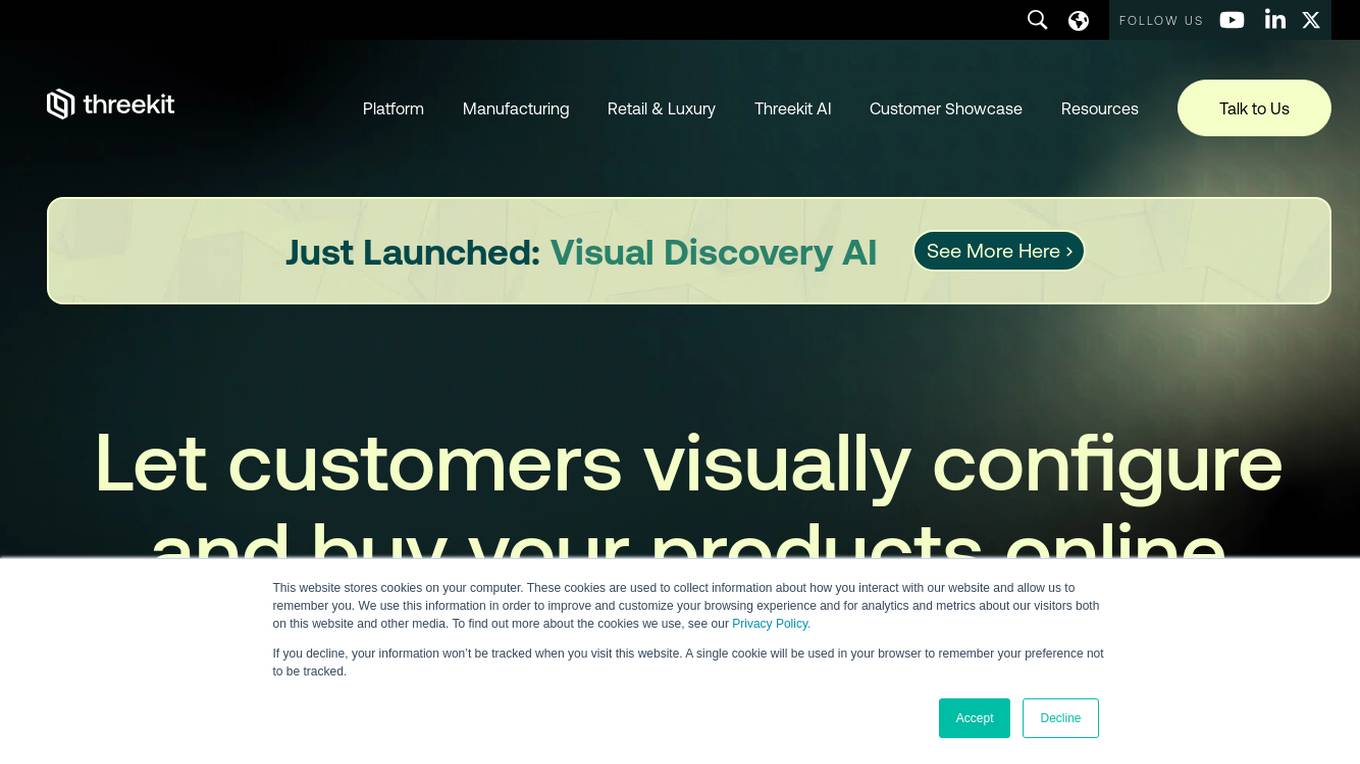
Threekit
Threekit is a visual product configurator tool designed for brands and manufacturers to enhance online product customization and purchasing experiences. It offers differentiated visual experiences for leading brands in various categories such as furniture, jewelry, sporting goods, commercial bath, and custom doors. Threekit enables users to connect with buyers through amazing visual configurations, 3D modeling, virtual photography, space planning, and augmented reality. The platform also provides tools like bill of material, spec sheets, quotes, and integrations with eCommerce, ERP, configurator, PIM, and more to streamline sales processes. With Threekit, businesses can manage product updates, syndicate product experiences across sales channels, and set business rules and automations.
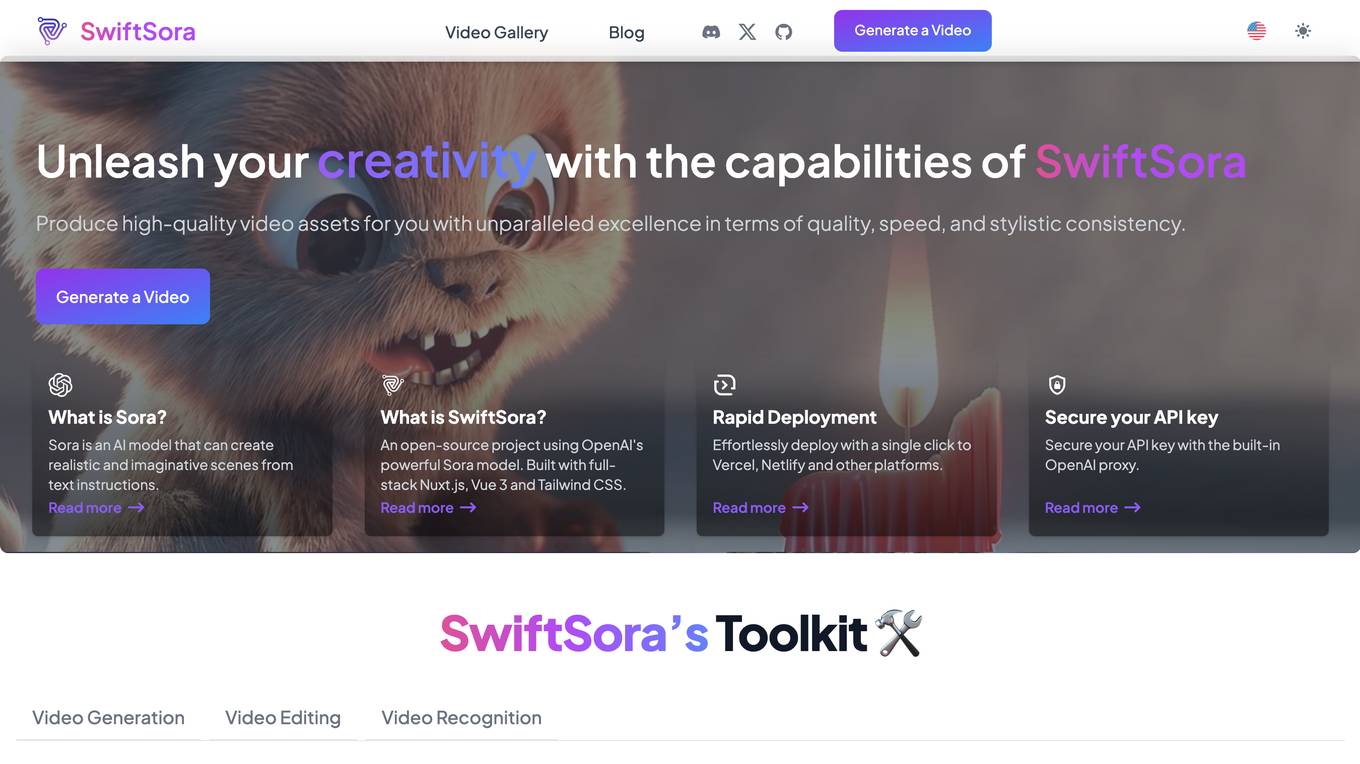
SwiftSora
SwiftSora is an open-source project that enables users to generate videos from prompt text online. The project utilizes OpenAI's Sora model to streamline video creation and includes a straightforward one-click website deployment feature. With SwiftSora, users can effortlessly produce high-quality video assets, ranging from realistic scenes to imaginative visuals, by simply providing text instructions. The platform offers a user-friendly interface with customizable settings, making it accessible to both beginners and experienced video creators. SwiftSora empowers users to elevate their creativity and redefine the boundaries of possibility in video production.
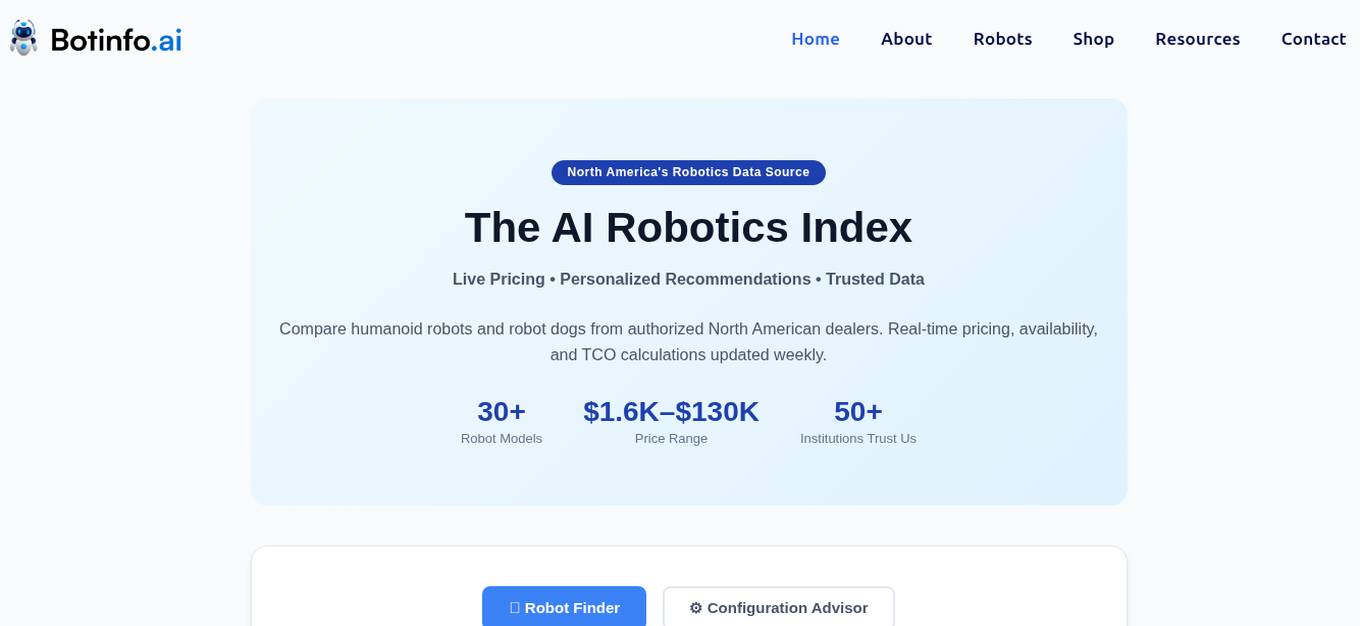
BotInfo.ai
BotInfo.ai is an AI application that serves as the AI Robotics Index providing live prices and personalized recommendations for humanoid robots and robot dogs. It offers a comprehensive platform for comparing and evaluating various robot models, along with real-time pricing, availability, and total cost of ownership calculations. Users can generate procurement packages, download PDFs with specifications, and receive assistance in selecting the right robot for their specific needs. The platform caters to a wide range of organizations, including universities, research labs, schools, corporations, and government/military entities, offering tailored solutions for different use cases and budgets.
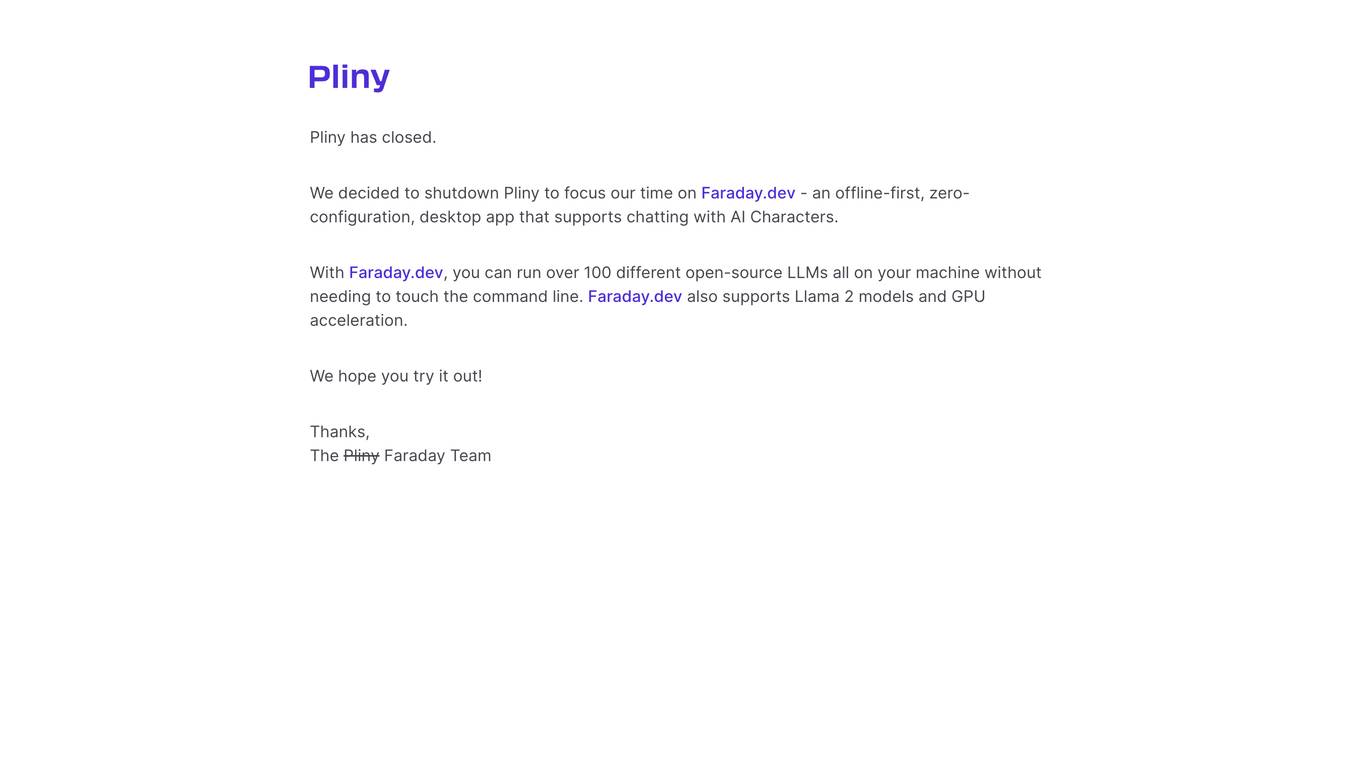
Faraday.dev
Faraday.dev is an offline-first, zero-configuration, desktop app that supports chatting with AI Characters. With Faraday.dev, you can run over 100 different open-source LLMs all on your machine without needing to touch the command line. Faraday.dev also supports Llama 2 models and GPU acceleration.

SaaS Pronto
SaaS Pronto is a revolutionary AI-powered platform that enables users to quickly build their own Software as a Service (SaaS) startups without the hassle of manual setup. By automating tasks such as database configuration, authentication, landing page design, and payment integration, SaaS Pronto empowers entrepreneurs to focus on developing profitable features. The platform offers a beginner-friendly approach, minimal coding requirements, and rapid deployment, making it ideal for indie makers and startups looking to launch MVPs efficiently and cost-effectively.
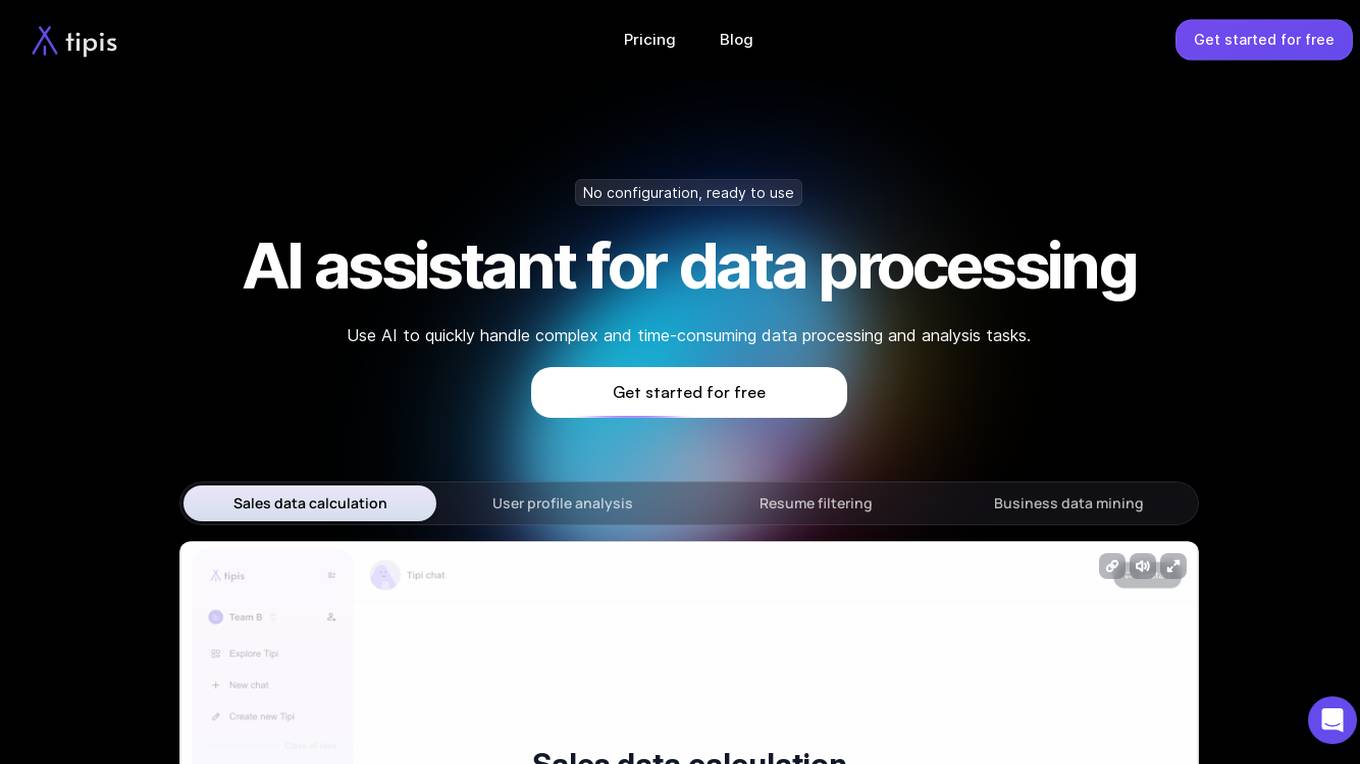
Tipis AI
Tipis AI is an AI assistant for data processing that uses Large Language Models (LLMs) to quickly read and analyze mainstream documents with enhanced precision. It can also generate charts, integrate with a wide range of mainstream databases and data sources, and facilitate seamless collaboration with other team members. Tipis AI is easy to use and requires no configuration.

ITVA
ITVA is an AI automation tool for network infrastructure products that revolutionizes network management by enabling users to configure, query, and document their network using natural language. It offers features such as rapid configuration deployment, network diagnostics acceleration, automated diagram generation, and modernized IP address management. ITVA's unique solution securely connects to networks, combining real-time data with a proprietary dataset curated by veteran engineers. The tool ensures unparalleled accuracy and insights through its real-time data pipeline and on-demand dynamic analysis capabilities.

Server Error Analyzer
The website is experiencing a 500 Internal Server Error, which indicates a problem with the server hosting the website. This error message is generated by the server when it is unable to fulfill a request from a client. The OpenResty software may be involved in the server configuration. Users encountering this error should contact the website administrator for assistance in resolving the issue.
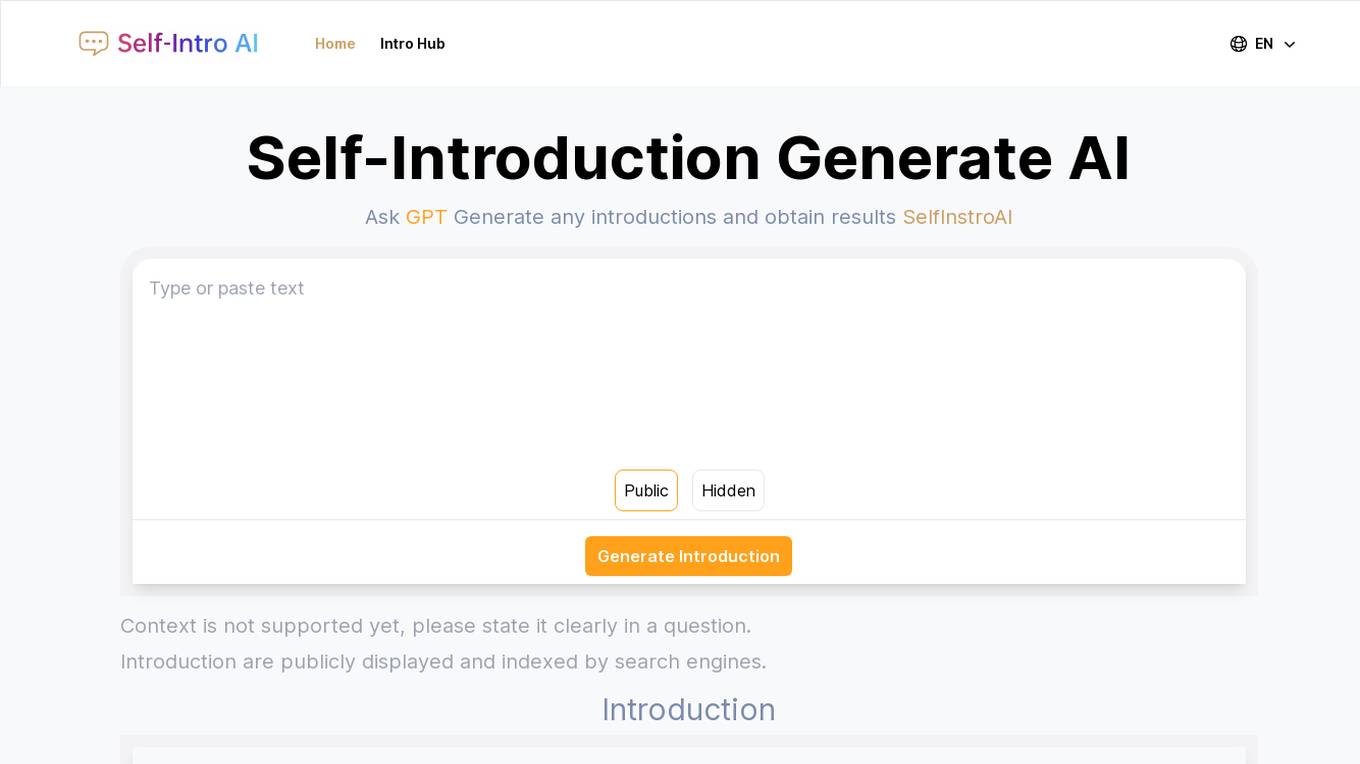
Self-Introduction Generate AI
Self-Introduction Generate AI is an innovative platform designed to assist individuals and businesses in crafting compelling and effective self-introductions. It leverages advanced AI technology to understand context and generate personalized content. The platform can analyze and understand various types of input, including text and context, to generate tailored self-introductions that are engaging and informative, enhancing personal and professional branding. With features like quick response times, quality assurance, and specialized service for self-introductions, it is an ideal tool for job applications, networking events, and personal branding initiatives.
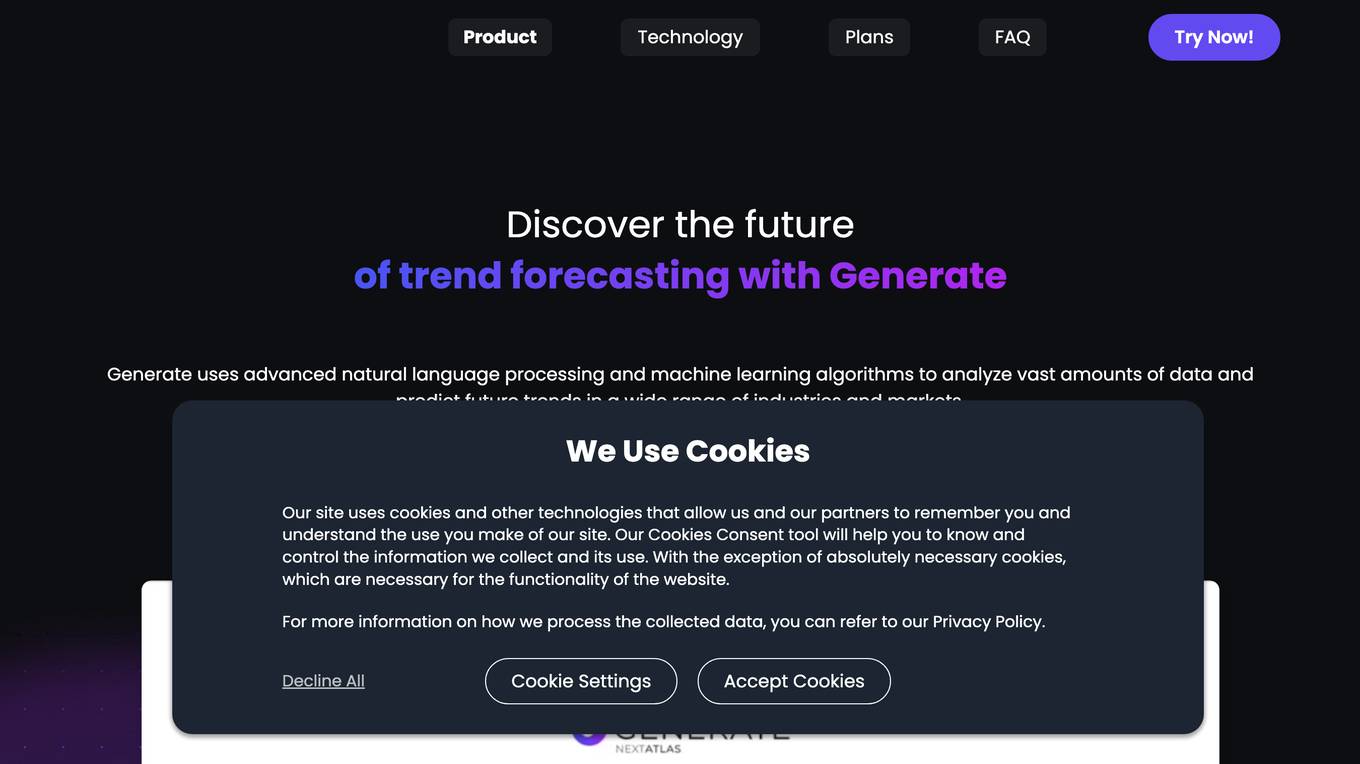
Nextatlas Generate Suite
Nextatlas Generate Suite is an AI-powered trend forecasting service that revolutionizes market research by offering profound insights into market trends and consumer behavior. It provides a full array of specialized assistants to jumpstart team's work, including scouting innovation, planning multiple scenarios, and advising on brand strategy. The suite features GenAI Agents for efficient workflows, Persona Generator Agent for persona development, Generate Chat for advanced insights, Innovation Tracker for tracking tech advancements, Sentiment Pulse Agent for real-time insights, Subculture Scout for engaging specific audiences, and Sustainability Scout for tracking emerging trends and regulations.
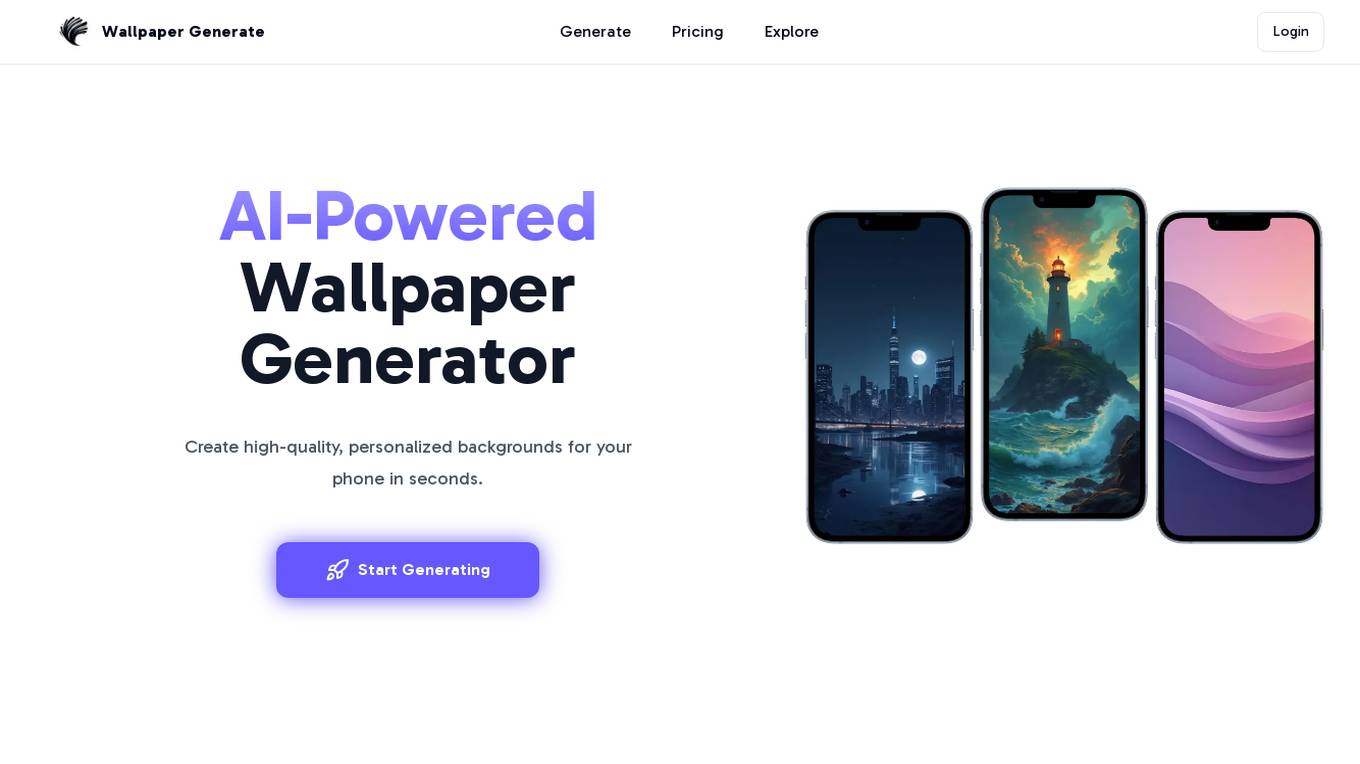
Wallpaper Generate
Wallpaper Generate is an AI-powered tool that allows users to create high-quality, personalized backgrounds for their phones in seconds. The platform offers a range of exceptional wallpaper styles, from nature and abstract to retro and vintage designs. Users can easily design and customize wallpapers by sharing their vision with the AI, selecting a style, and customizing colors. Wallpaper Generate provides infinite wallpaper possibilities, seamless creation process, high-quality designs, user-friendly design experience, stunning visual quality, and organized cloud storage integration.

ZMO.AI
ZMO.AI is a free AI image generator tool that allows users to create stunning AI art, images, anime, and realistic photos from text or images with a simple click of a button. The tool offers a full suite of powerful features to generate, remove, expand, or edit images like a pro using AI magic. With ZMO.AI, users can effortlessly generate anime and manga characters, flawless portrait photos, and realistic backgrounds. The application is trusted by over 1,000,000 users worldwide for its high-quality AI image generation capabilities.
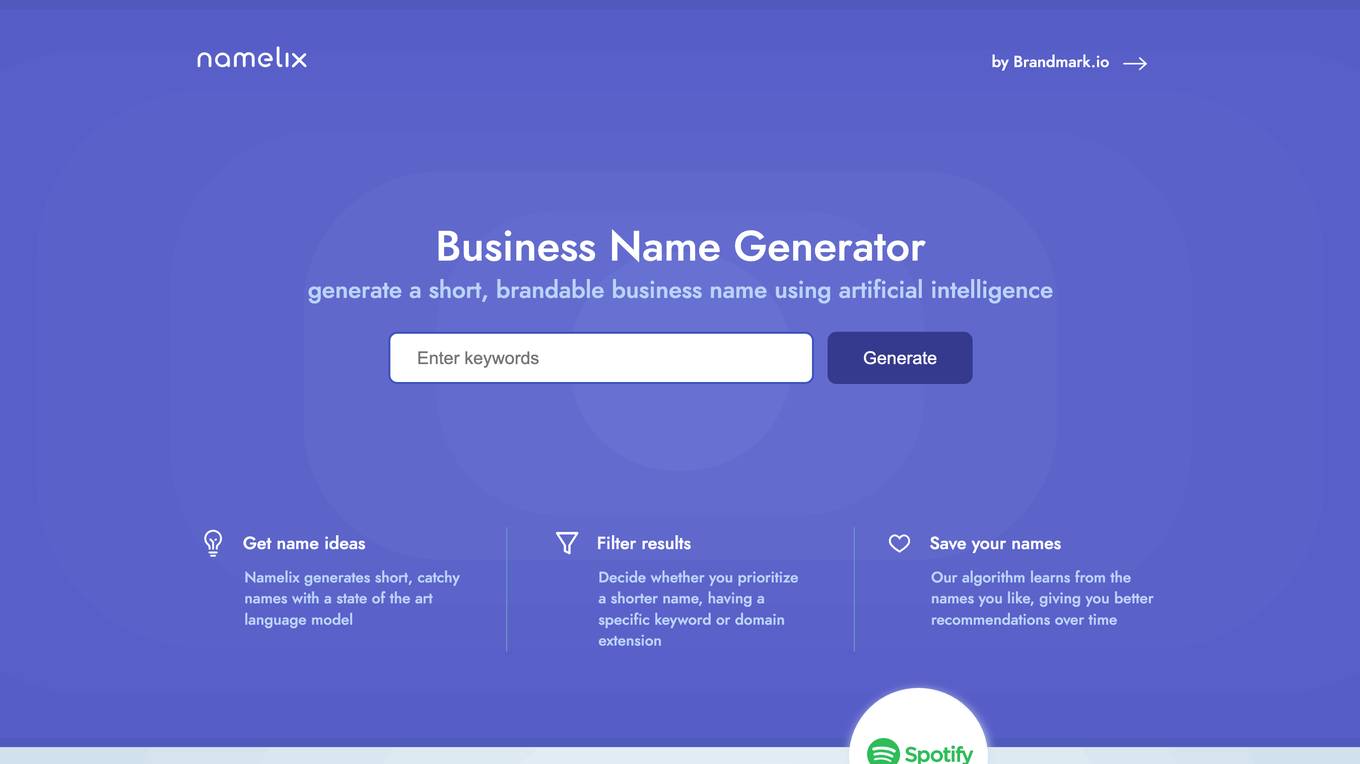
Namelix
Namelix by Brandmark.io is a free AI-powered business name generator that helps users create short, brandable names using artificial intelligence. The tool generates catchy names with a state-of-the-art language model, allows users to filter results based on preferences, and saves preferred names to provide better recommendations over time. Namelix aims to address the challenge of limited naming options for new businesses by offering unique, memorable, and affordable branded names. The tool also assists in creating professional logos for businesses.
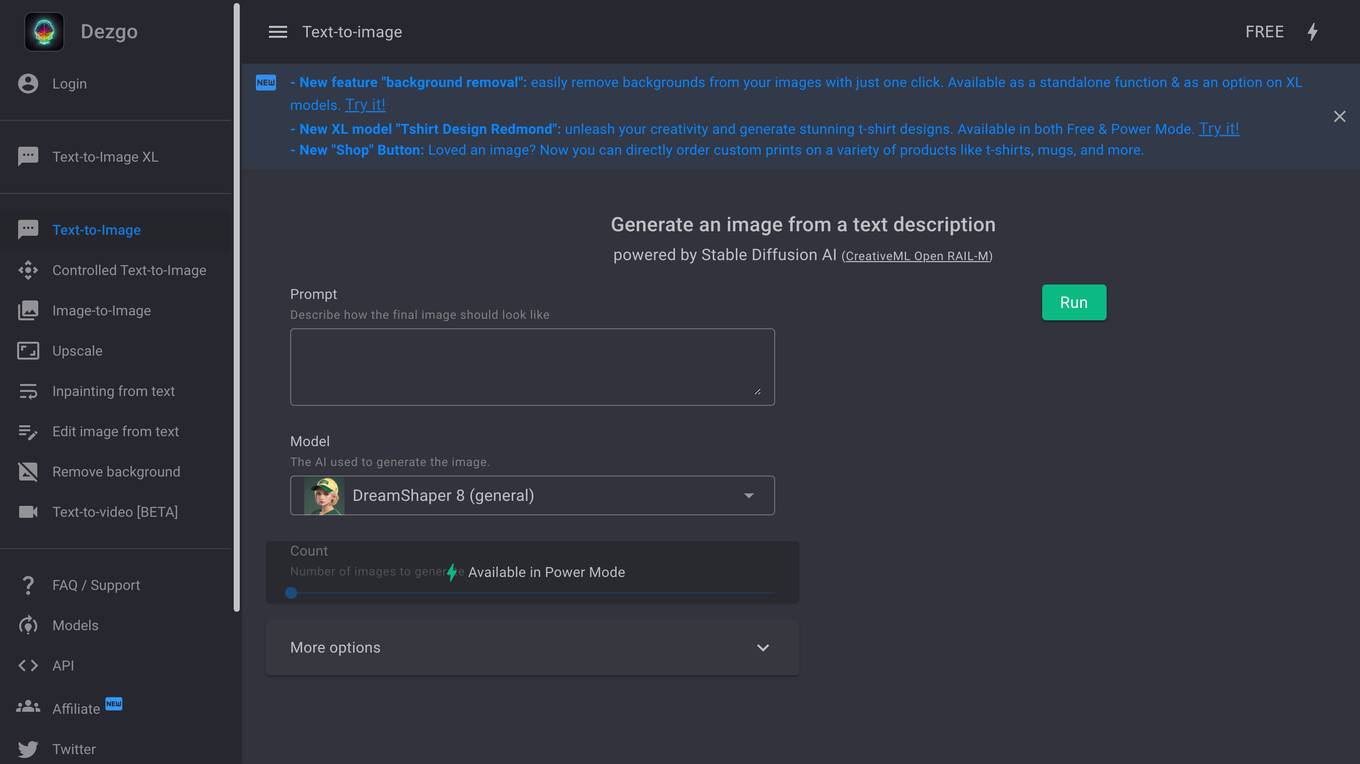
Dezgo
Dezgo is a text-to-image AI image generator powered by Stable Diffusion AI. It allows users to generate images from text descriptions. The tool offers various features such as controlled text-to-image, image-to-image upscale, inpainting from text, editing images from text, removing backgrounds, and text-to-video generation. Dezgo also provides access to models, APIs, and an affiliate program.
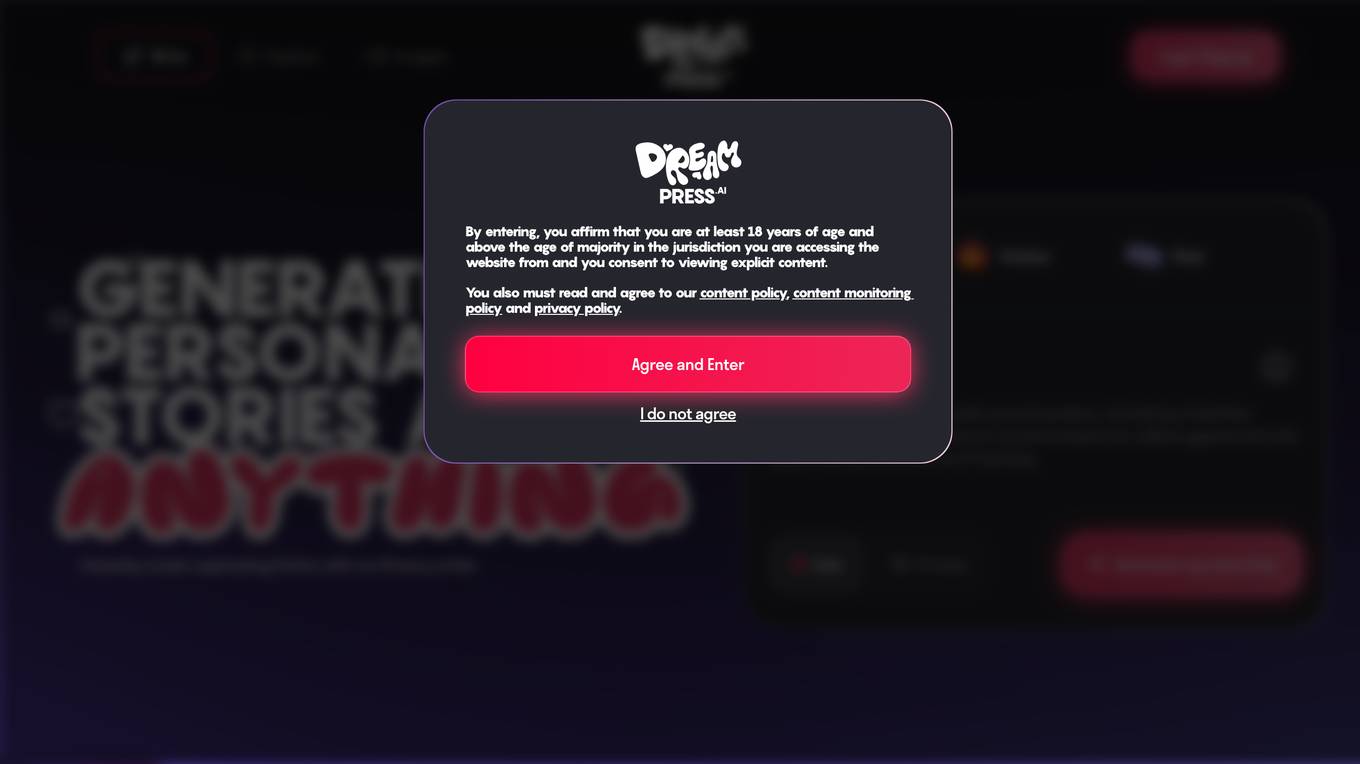
AI Story Generator
This free AI story generator can help you create unique and engaging stories in seconds. Simply enter a few details about your story, and our AI will generate a complete story for you. You can use this tool to generate story ideas, write short stories, or even create entire novels.
5 - Open Source AI Tools
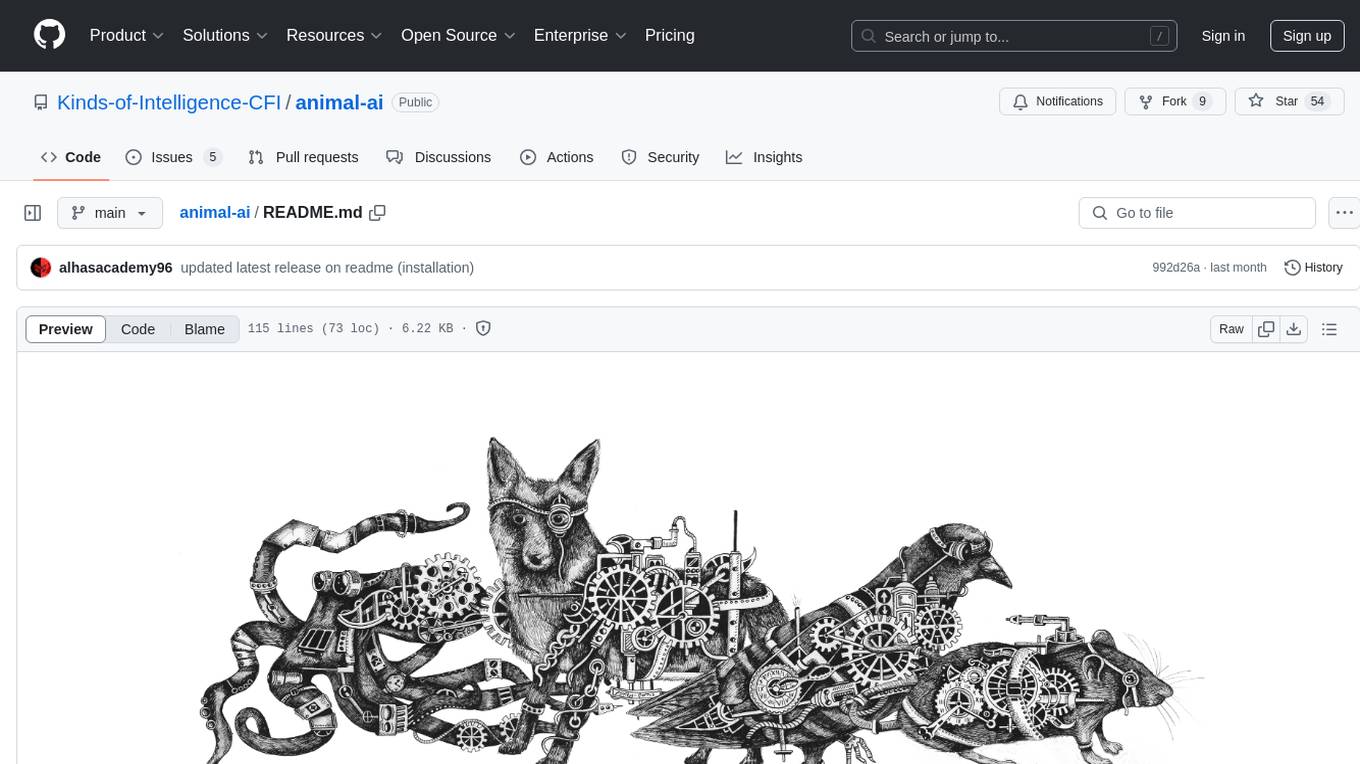
animal-ai
Animal-Artificial Intelligence (Animal-AI) is an interdisciplinary research platform designed to understand human, animal, and artificial cognition. It supports AI research to unlock cognitive capabilities and explore the space of possible minds. The open-source project facilitates testing across animals, humans, and AI, providing a comprehensive AI environment with a library of 900 tasks. It offers compatibility with Windows, Linux, and macOS, supporting Python 3.6.x and above. The environment utilizes Unity3D Game Engine, Unity ML-Agents toolkit, and provides interactive elements for AI training scenarios.
aiconfigurator
The `aiconfigurator` tool assists in finding a strong starting configuration for disaggregated serving in AI deployments. It helps optimize throughput at a given latency by evaluating thousands of configurations based on model, GPU count, and GPU type. The tool models LLM inference using collected data for a target machine and framework, running via CLI and web app. It generates configuration files for deployment with Dynamo, offering features like customized configuration, all-in-one automation, and tuning with advanced features. The tool estimates performance by breaking down LLM inference into operations, collecting operation execution times, and searching for strong configurations. Supported features include models like GPT and operations like attention, KV cache, GEMM, AllReduce, embedding, P2P, element-wise, MoE, MLA BMM, TRTLLM versions, and parallel modes like tensor-parallel and pipeline-parallel.
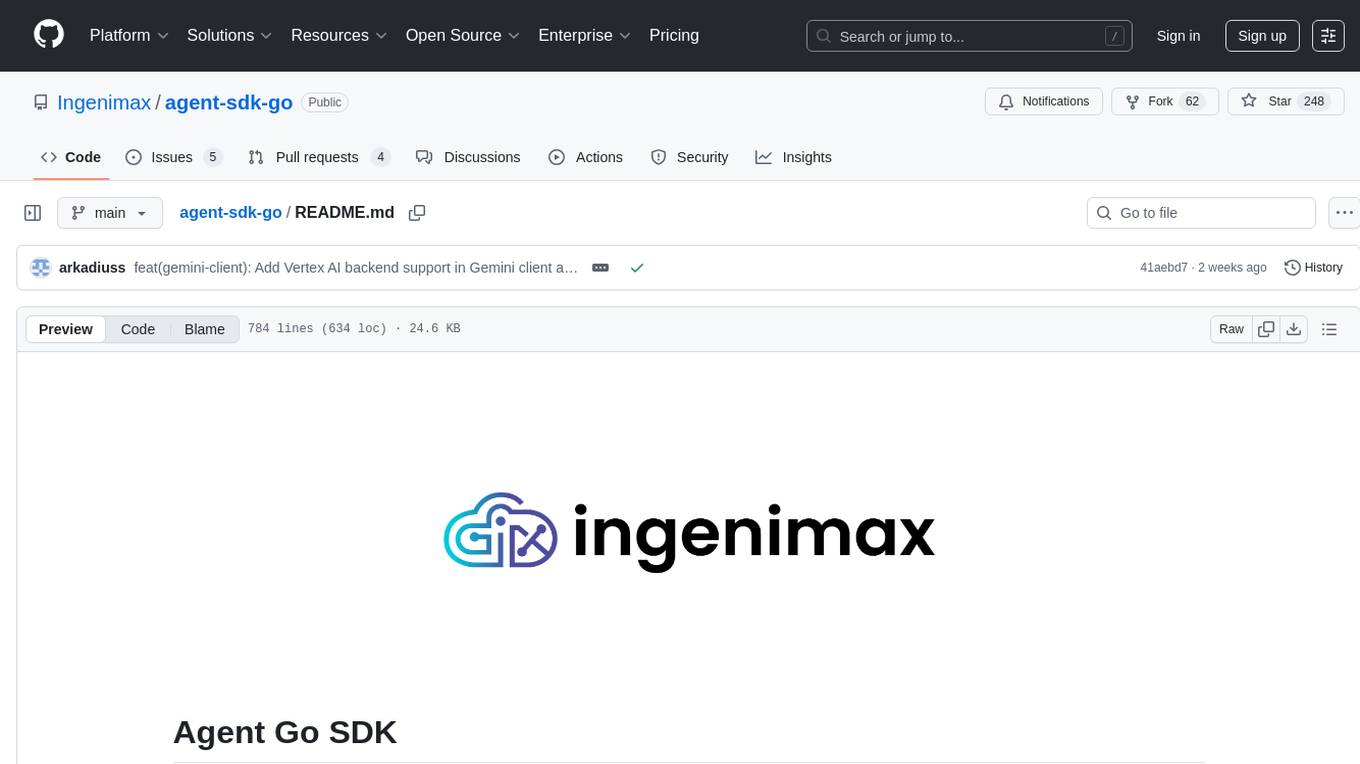
agent-sdk-go
Agent Go SDK is a powerful Go framework for building production-ready AI agents that seamlessly integrates memory management, tool execution, multi-LLM support, and enterprise features into a flexible, extensible architecture. It offers core capabilities like multi-model intelligence, modular tool ecosystem, advanced memory management, and MCP integration. The SDK is enterprise-ready with built-in guardrails, complete observability, and support for enterprise multi-tenancy. It provides a structured task framework, declarative configuration, and zero-effort bootstrapping for development experience. The SDK supports environment variables for configuration and includes features like creating agents with YAML configuration, auto-generating agent configurations, using MCP servers with an agent, and CLI tool for headless usage.
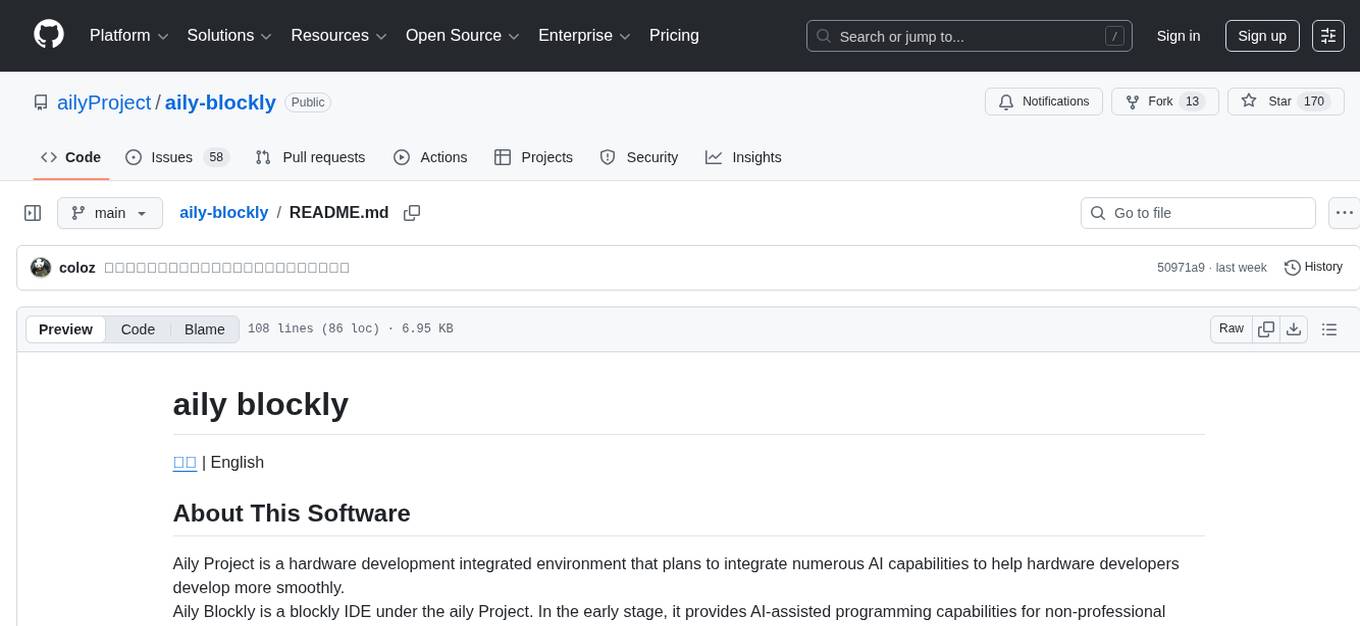
aily-blockly
Aily Blockly is a blockly IDE under the Aily Project, providing AI-assisted programming capabilities for non-professional users. It aims to integrate numerous AI capabilities to help hardware developers develop more smoothly, ultimately achieving natural language programming. The software offers features like Engineering Project Management, Library Manager, Serial Debug Tool, AI Project Generation, AI Code Generation, AI Library Conversion, Development Board Configuration Generation, and Lightning Compilation Tool. It is currently in the alpha stage, suitable for prototype verification and educational teaching.
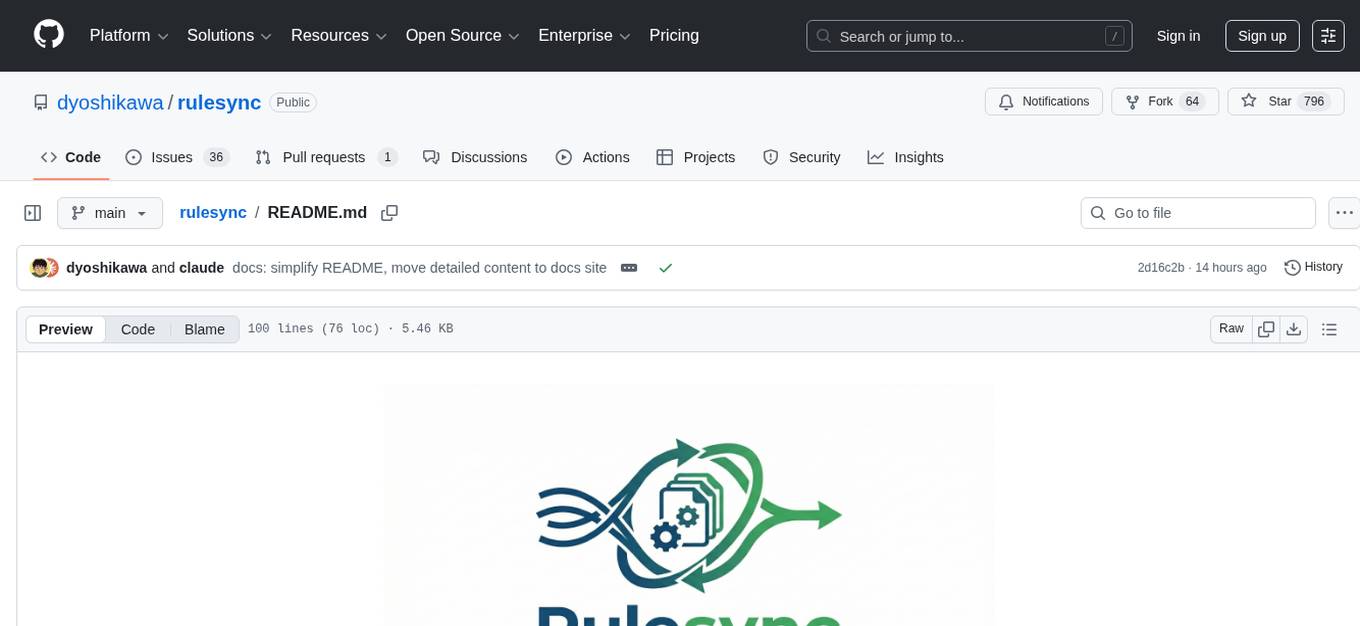
rulesync
Rulesync is a Node.js CLI tool that automatically generates configuration files for various AI development tools from unified AI rule files. It features selective generation, comprehensive import/export capabilities, and supports major AI development tools with rules, commands, MCP, ignore files, subagents, and skills.
20 - OpenAI Gpts
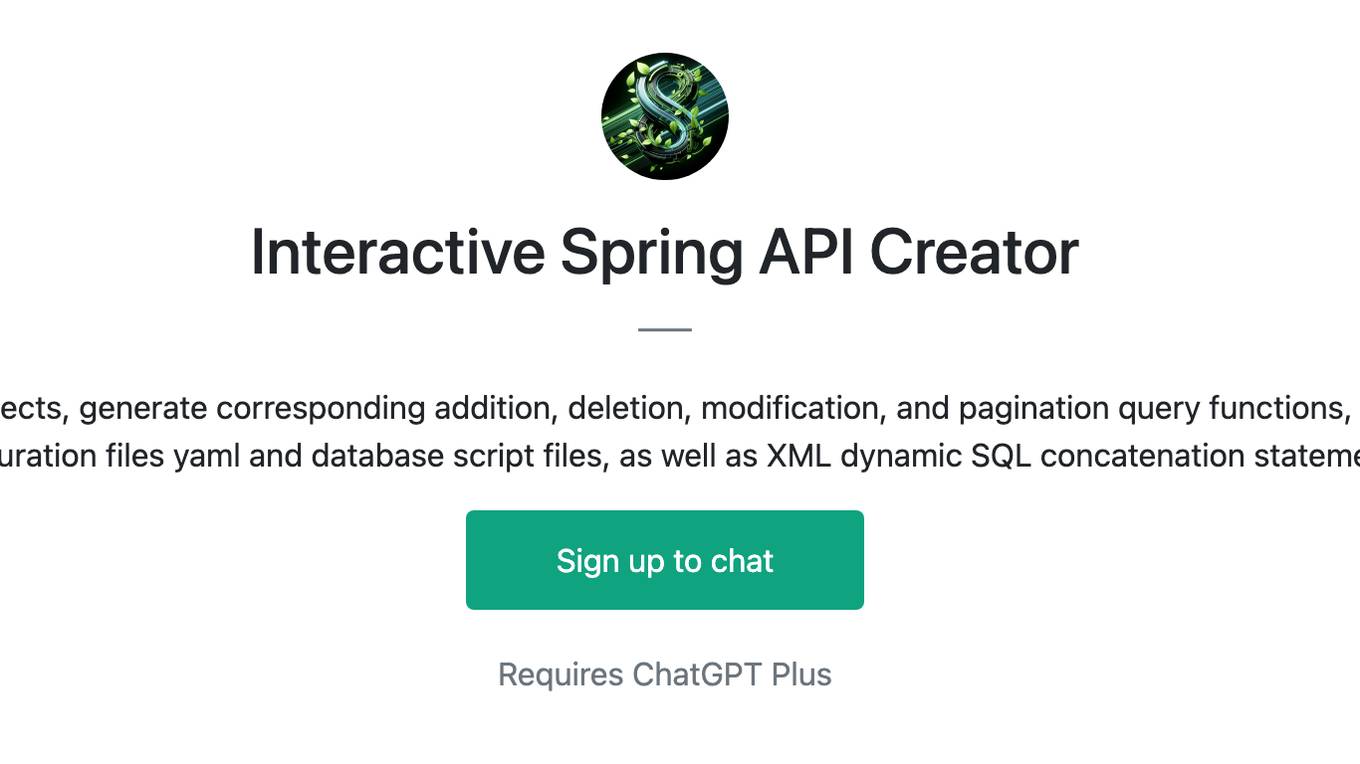
Interactive Spring API Creator
Pass in the attributes of Pojo entity class objects, generate corresponding addition, deletion, modification, and pagination query functions, including generating database connection configuration files yaml and database script files, as well as XML dynamic SQL concatenation statements.

Gradle Expert
Your expert in Gradle build configuration, offering clear, practical advice.
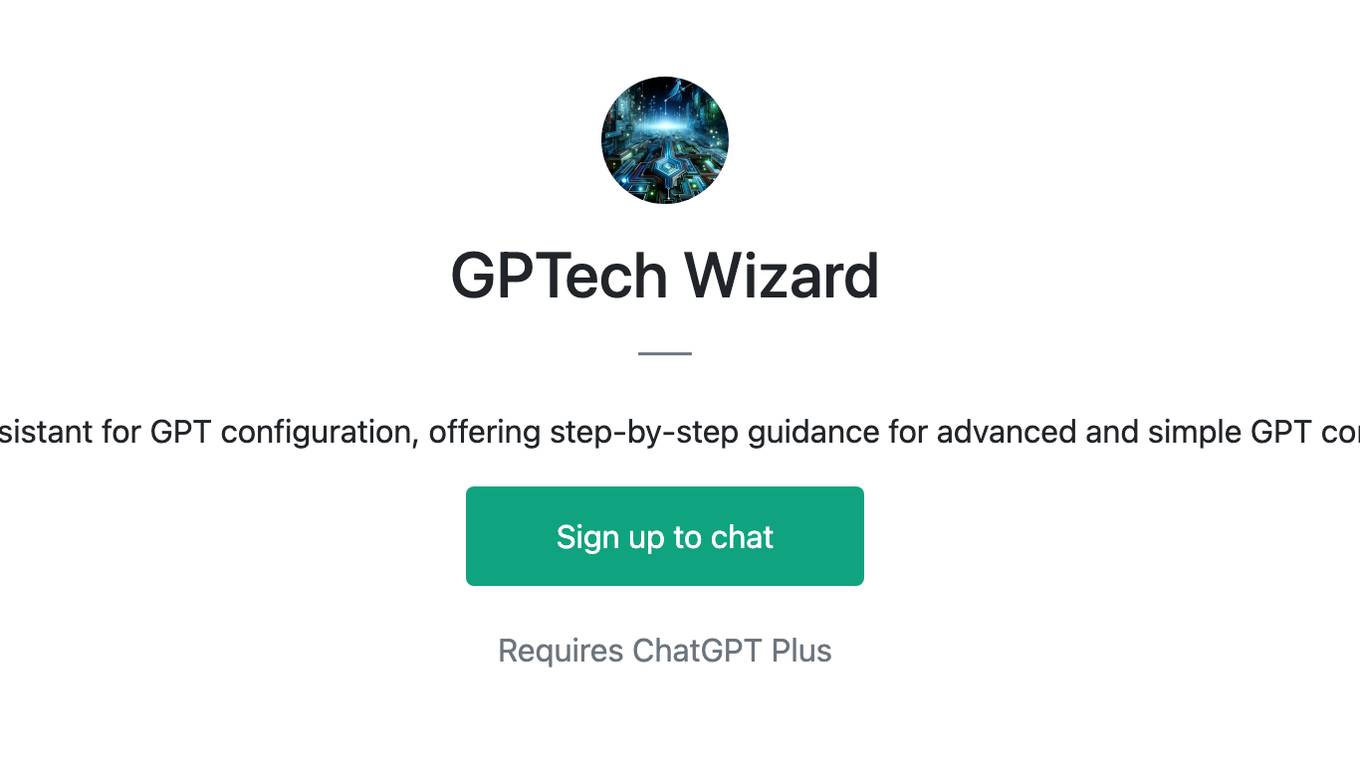
GPTech Wizard
A friendly assistant for GPT configuration, offering step-by-step guidance for advanced and simple GPT construction.
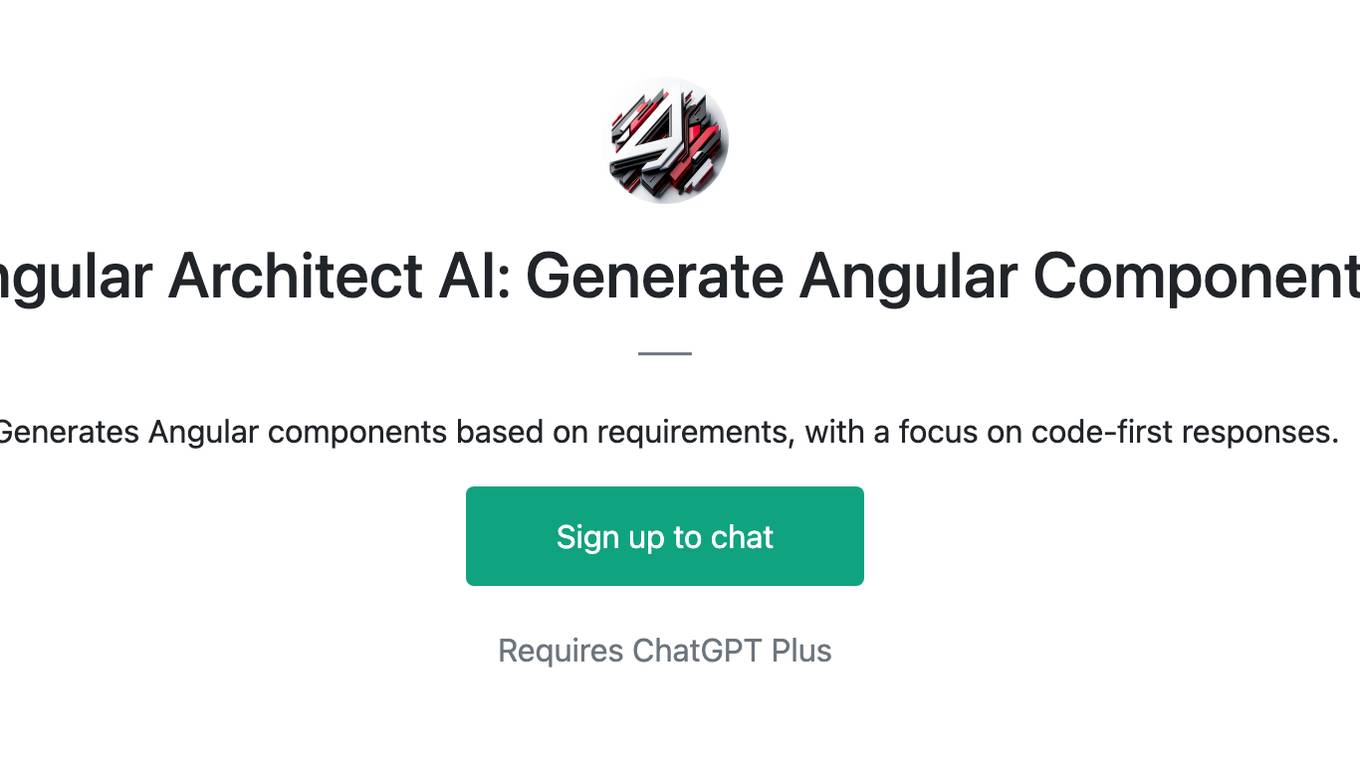
Angular Architect AI: Generate Angular Components
Generates Angular components based on requirements, with a focus on code-first responses.
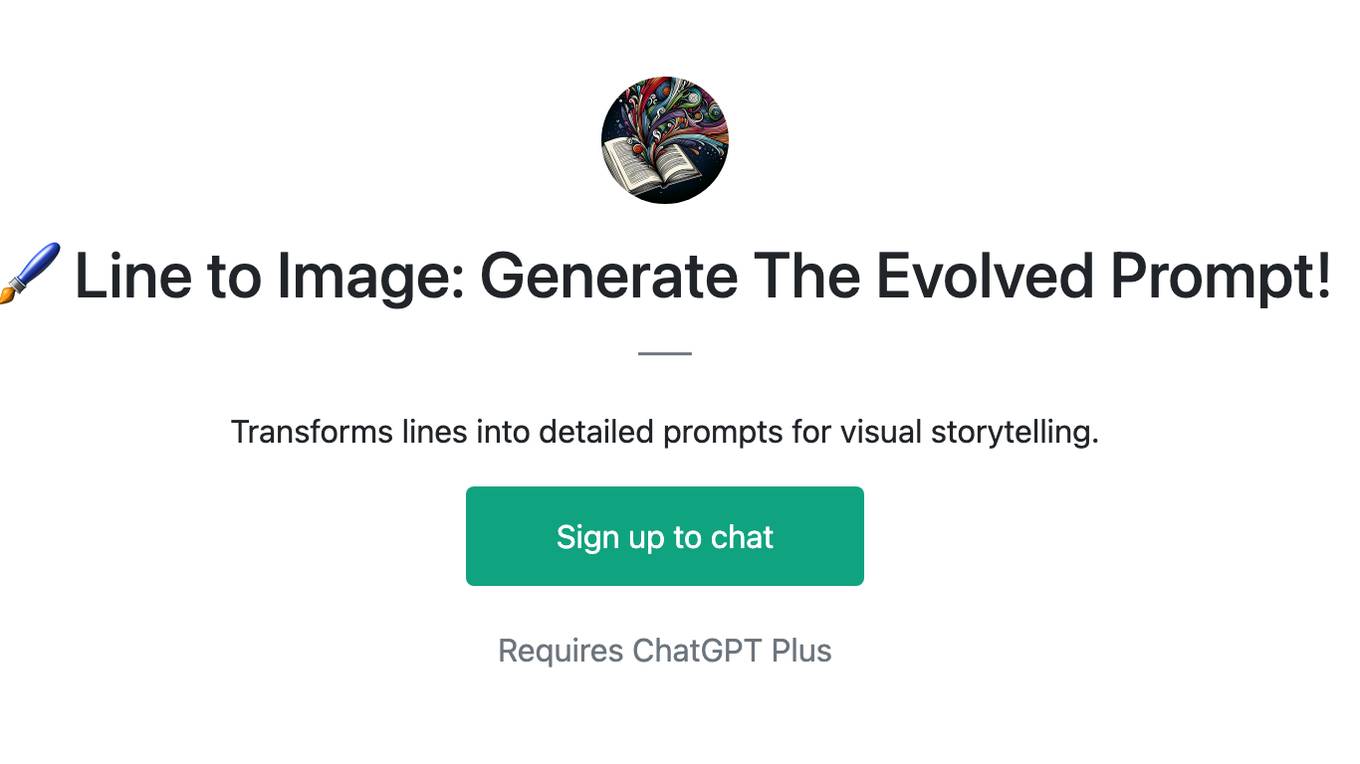
🖌️ Line to Image: Generate The Evolved Prompt!
Transforms lines into detailed prompts for visual storytelling.
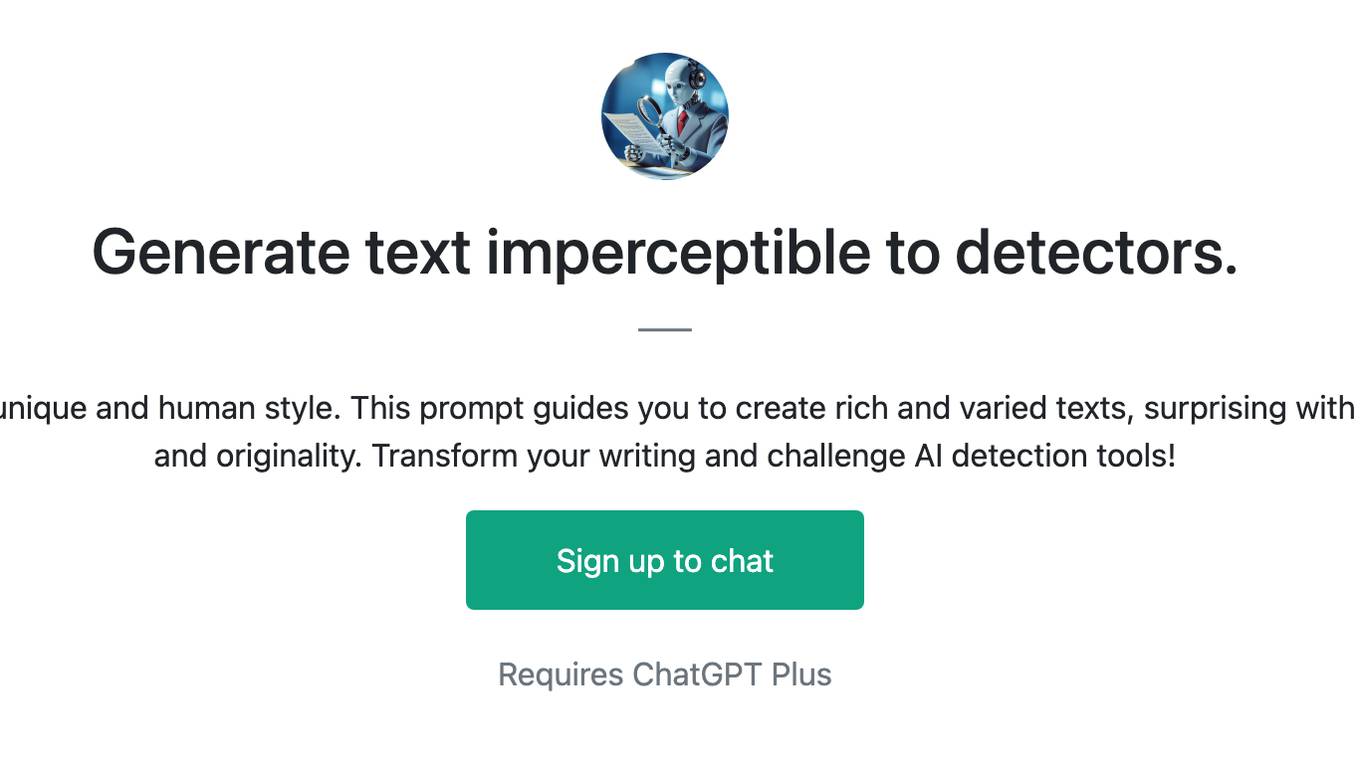
Generate text imperceptible to detectors.
Discover how your writing can shine with a unique and human style. This prompt guides you to create rich and varied texts, surprising with original twists and maintaining coherence and originality. Transform your writing and challenge AI detection tools!
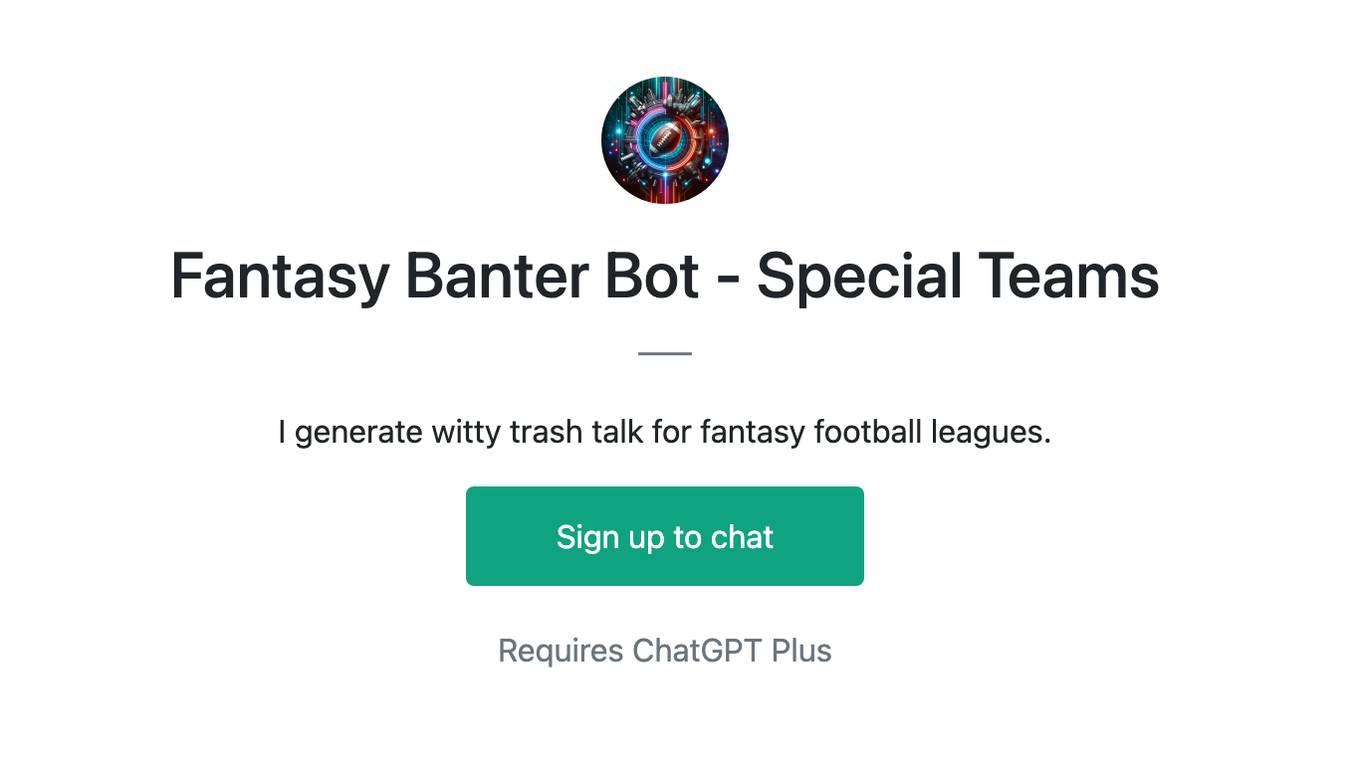
Fantasy Banter Bot - Special Teams
I generate witty trash talk for fantasy football leagues.

Product StoryBoard Director
Helps you generate script keyframes, for better experience please visit museclip.ai
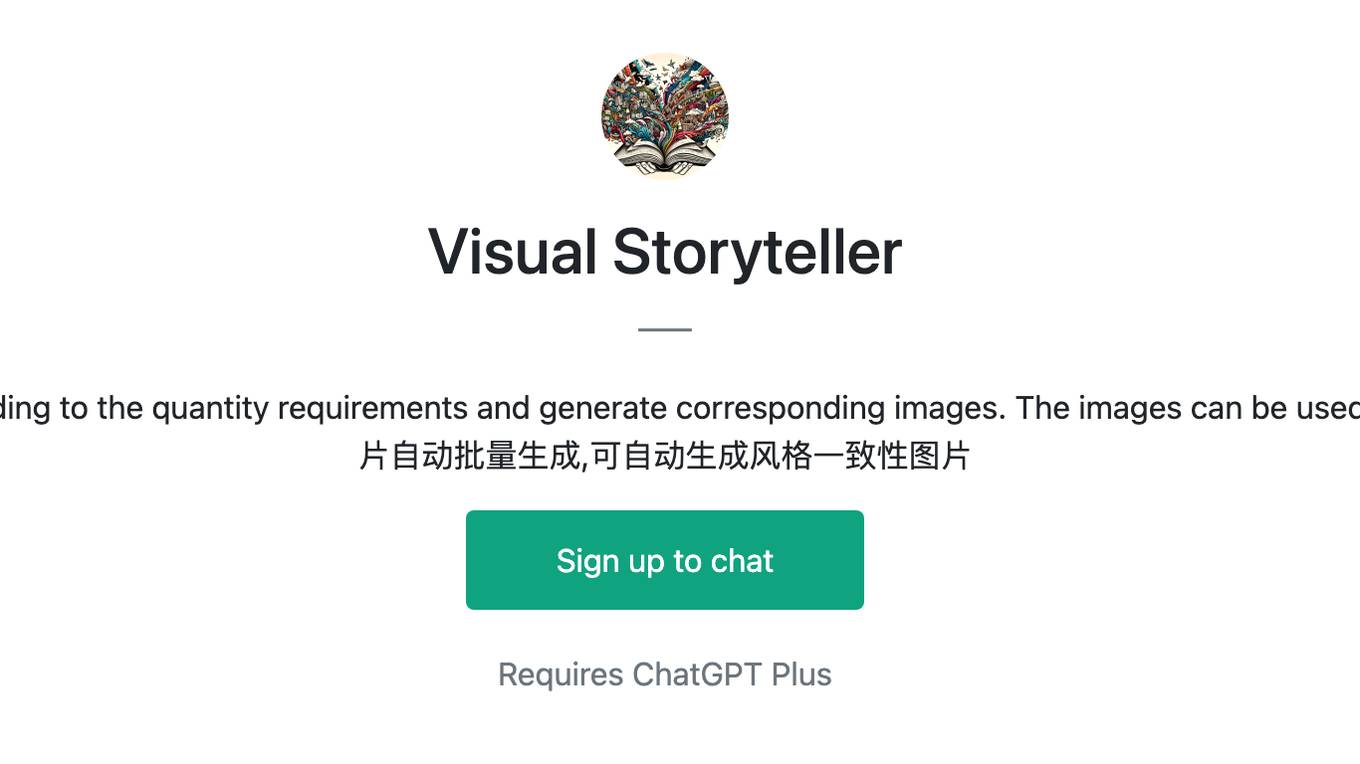
Visual Storyteller
Extract the essence of the novel story according to the quantity requirements and generate corresponding images. The images can be used directly to create novel videos.小说推文图片自动批量生成,可自动生成风格一致性图片
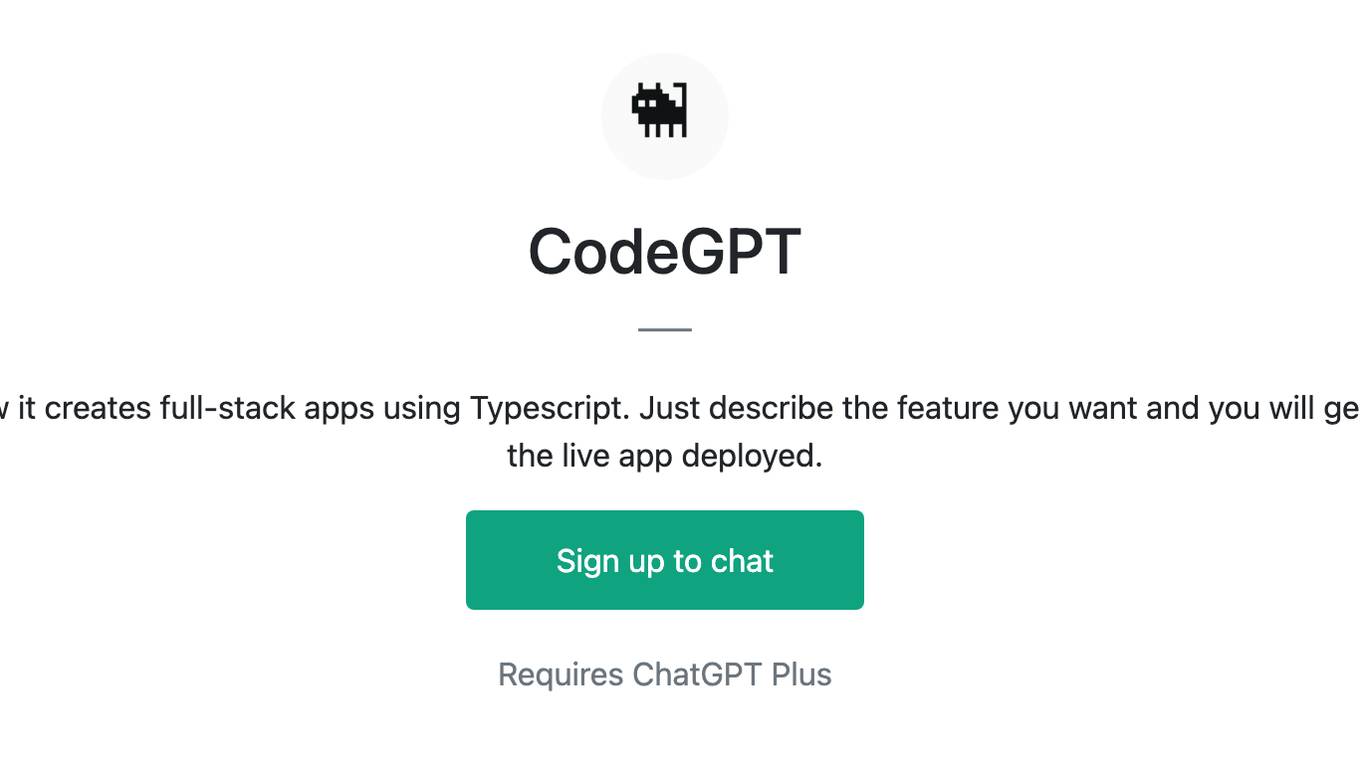
CodeGPT
This GPT can generate code for you. For now it creates full-stack apps using Typescript. Just describe the feature you want and you will get a link to the Github code pull request and the live app deployed.
